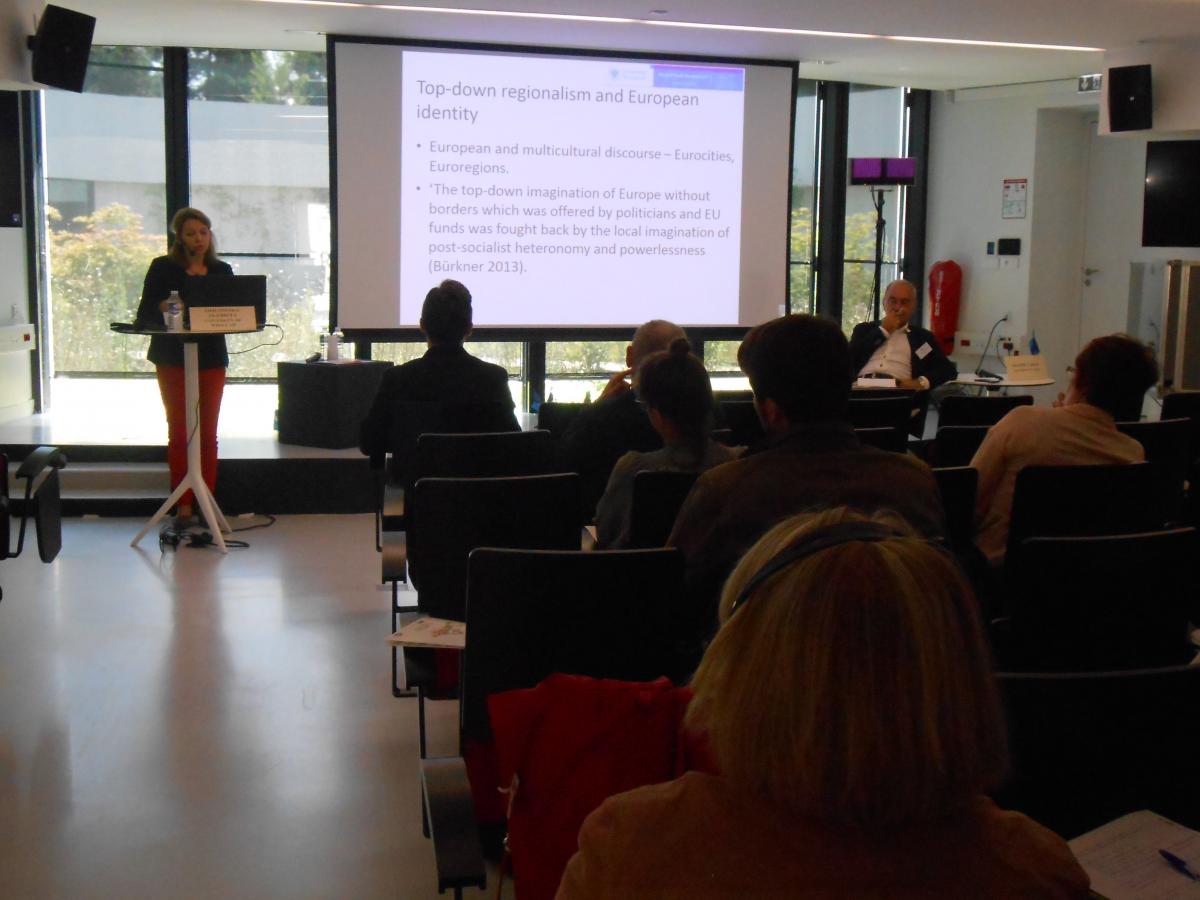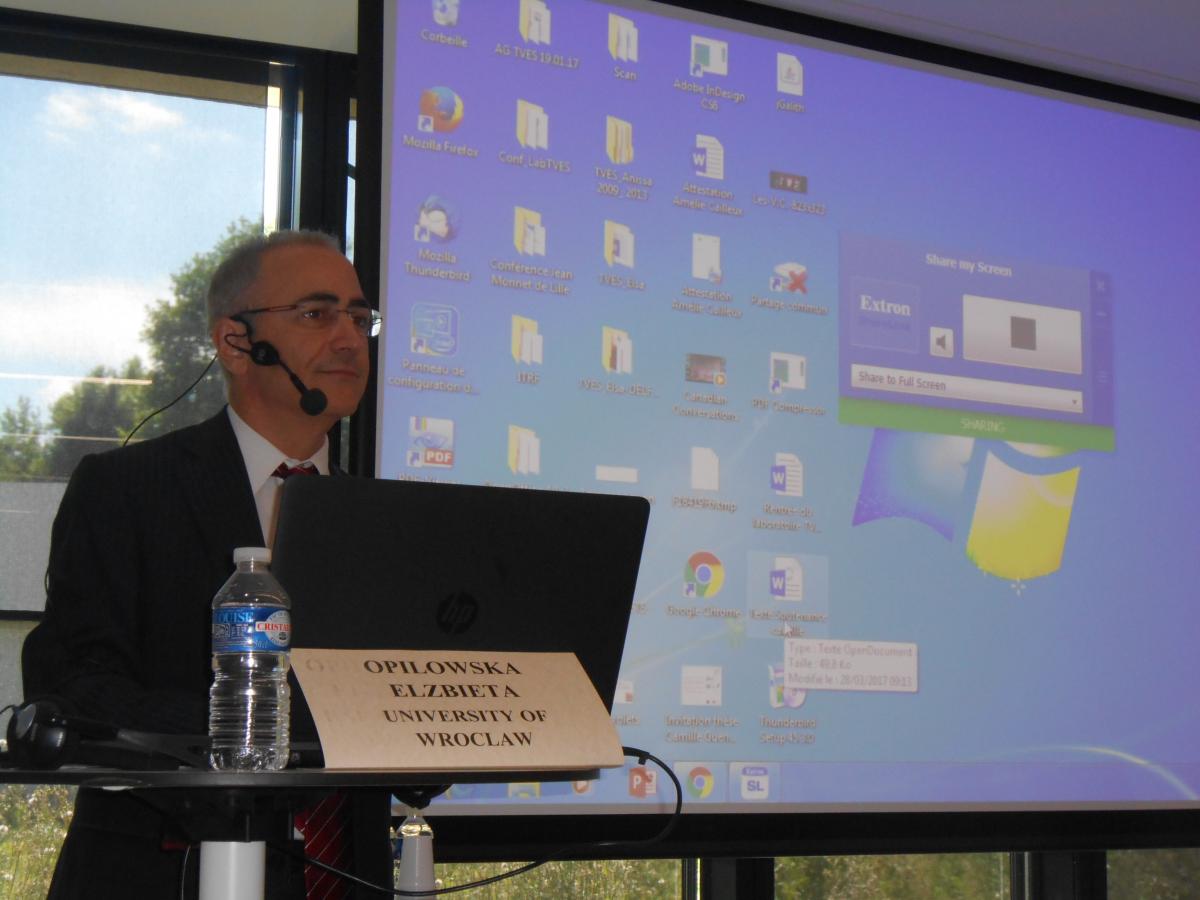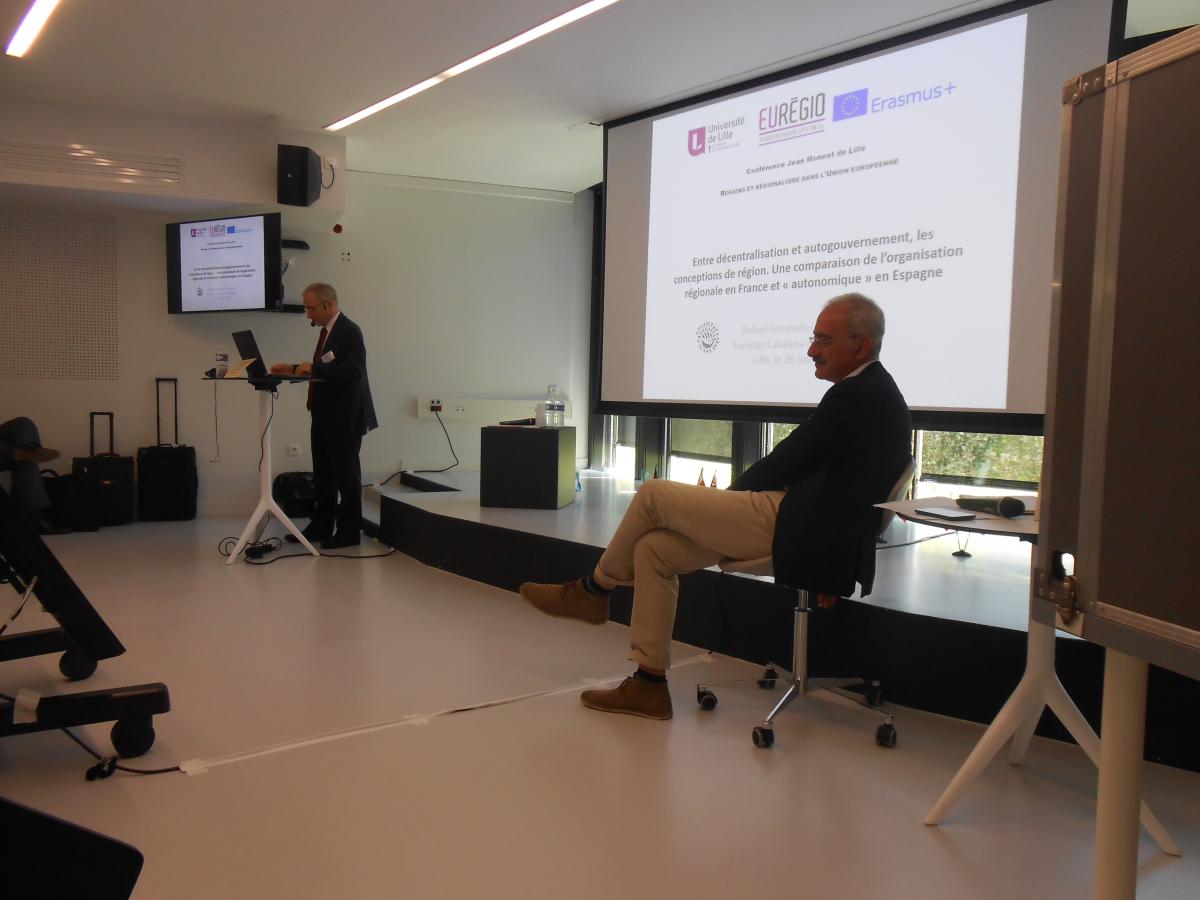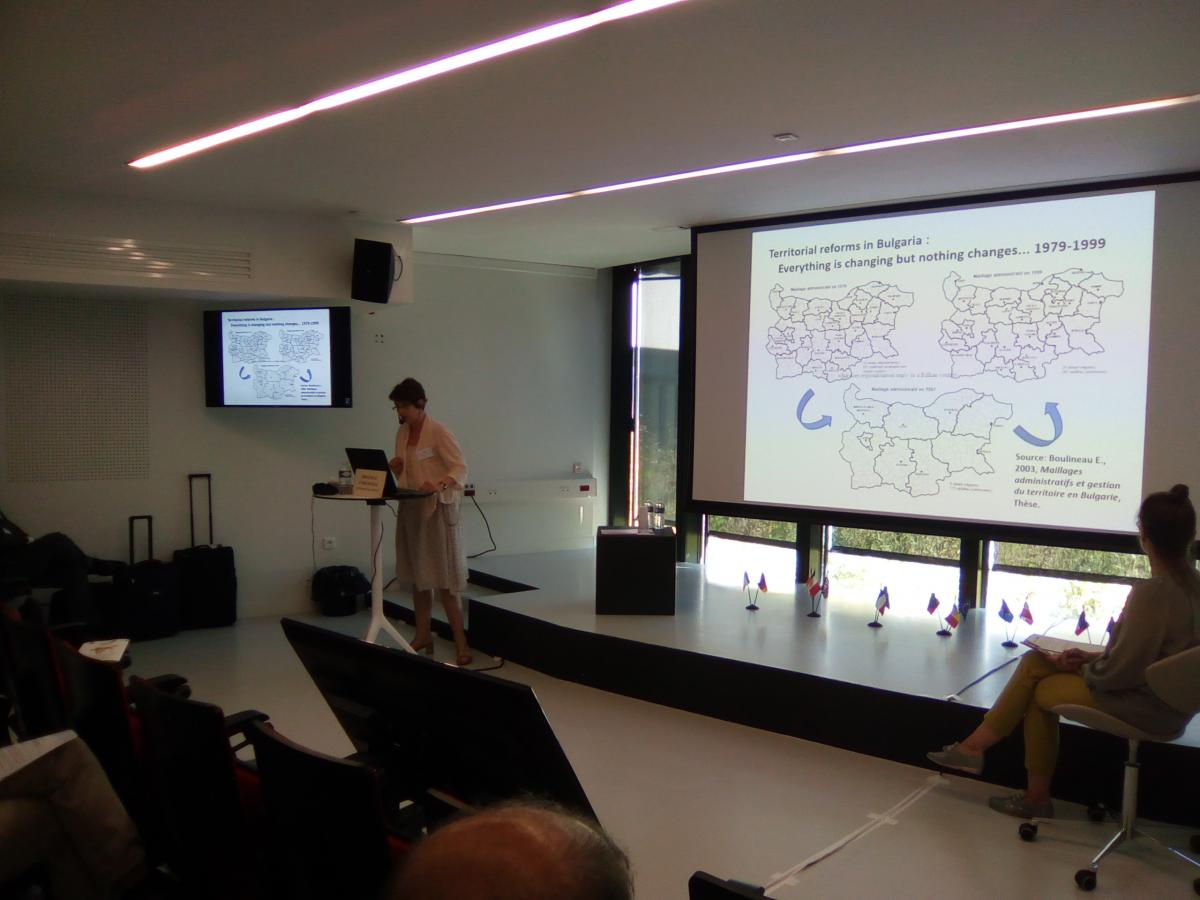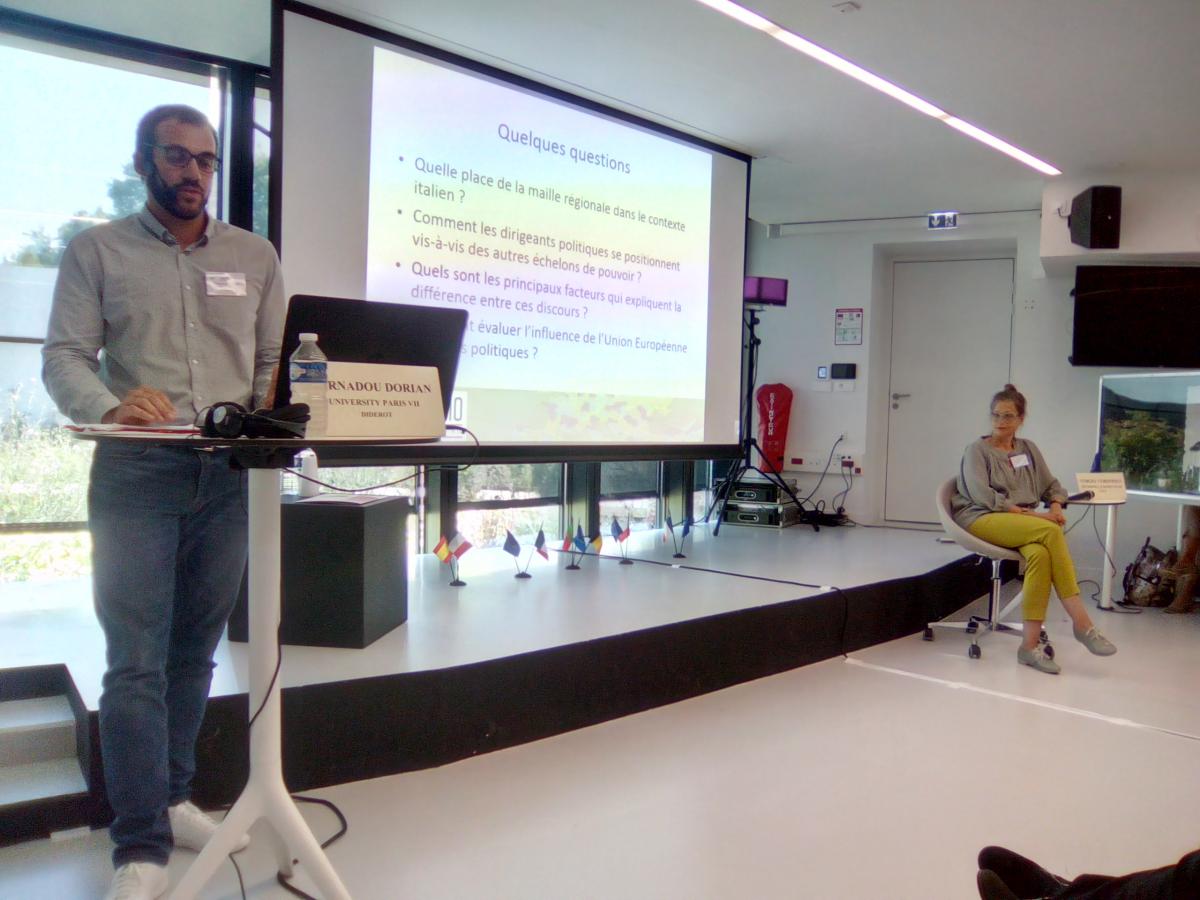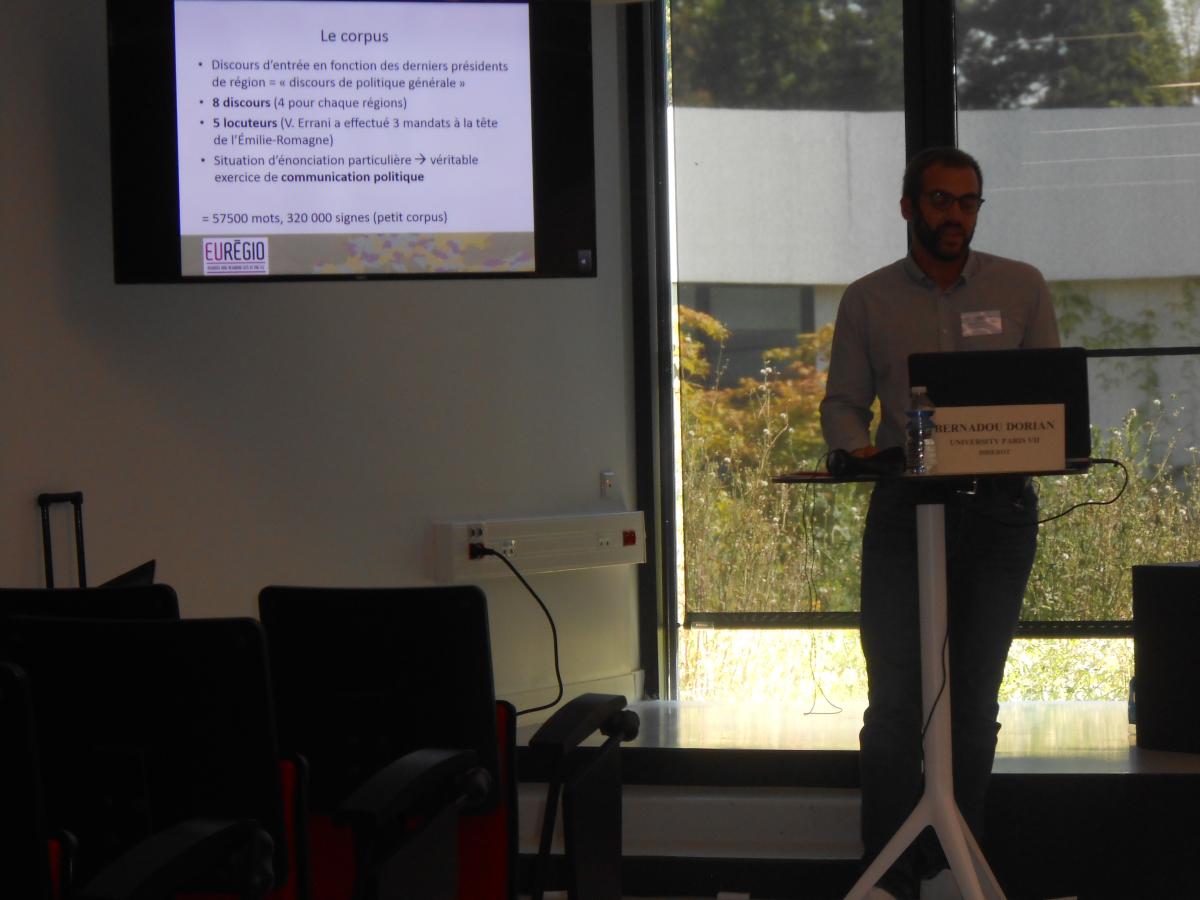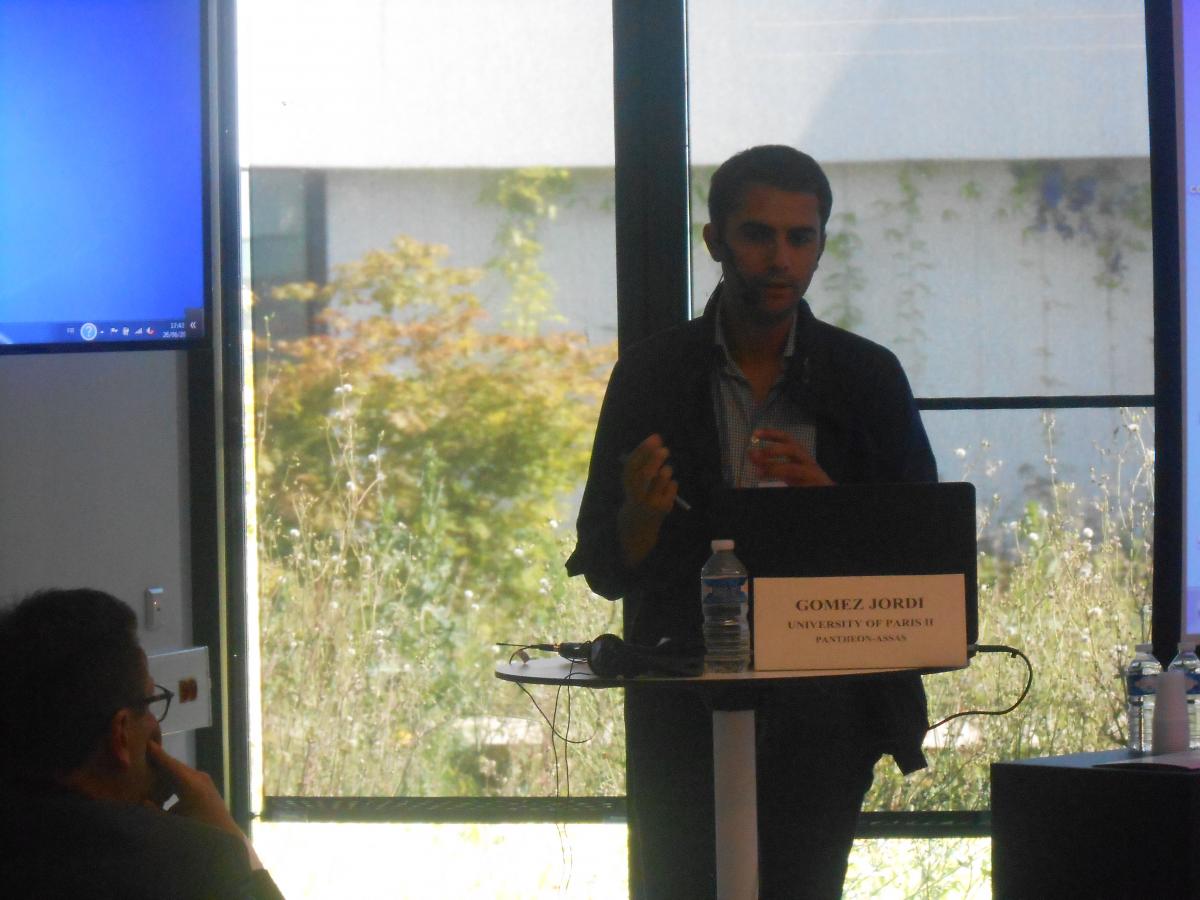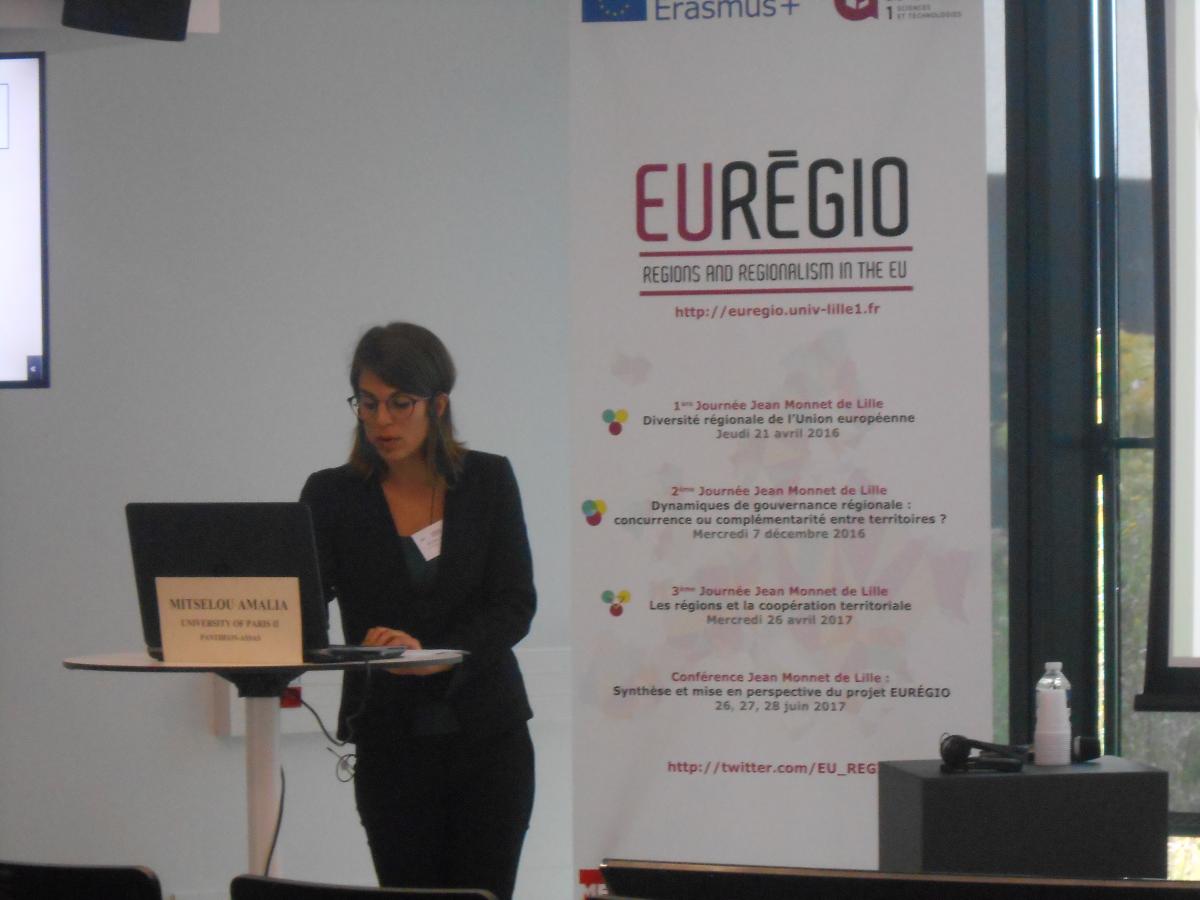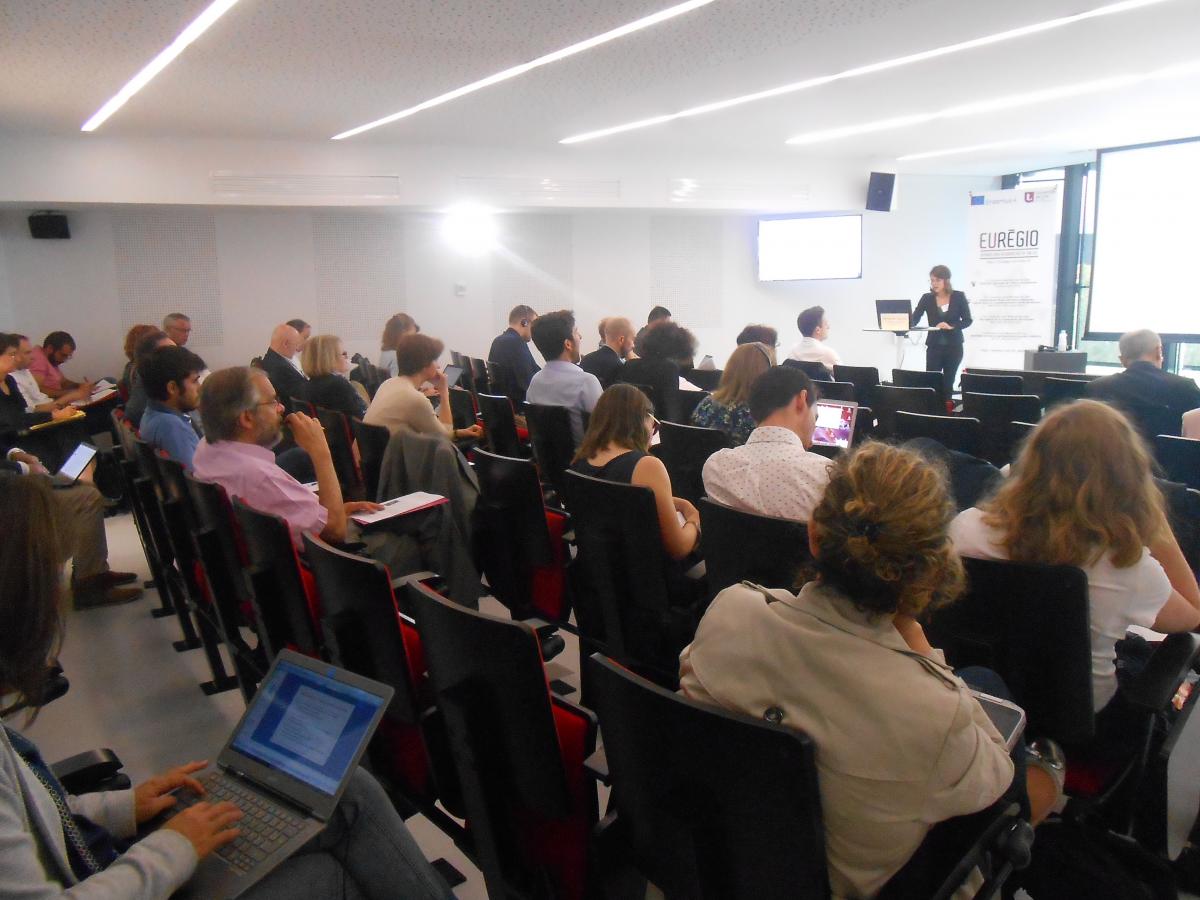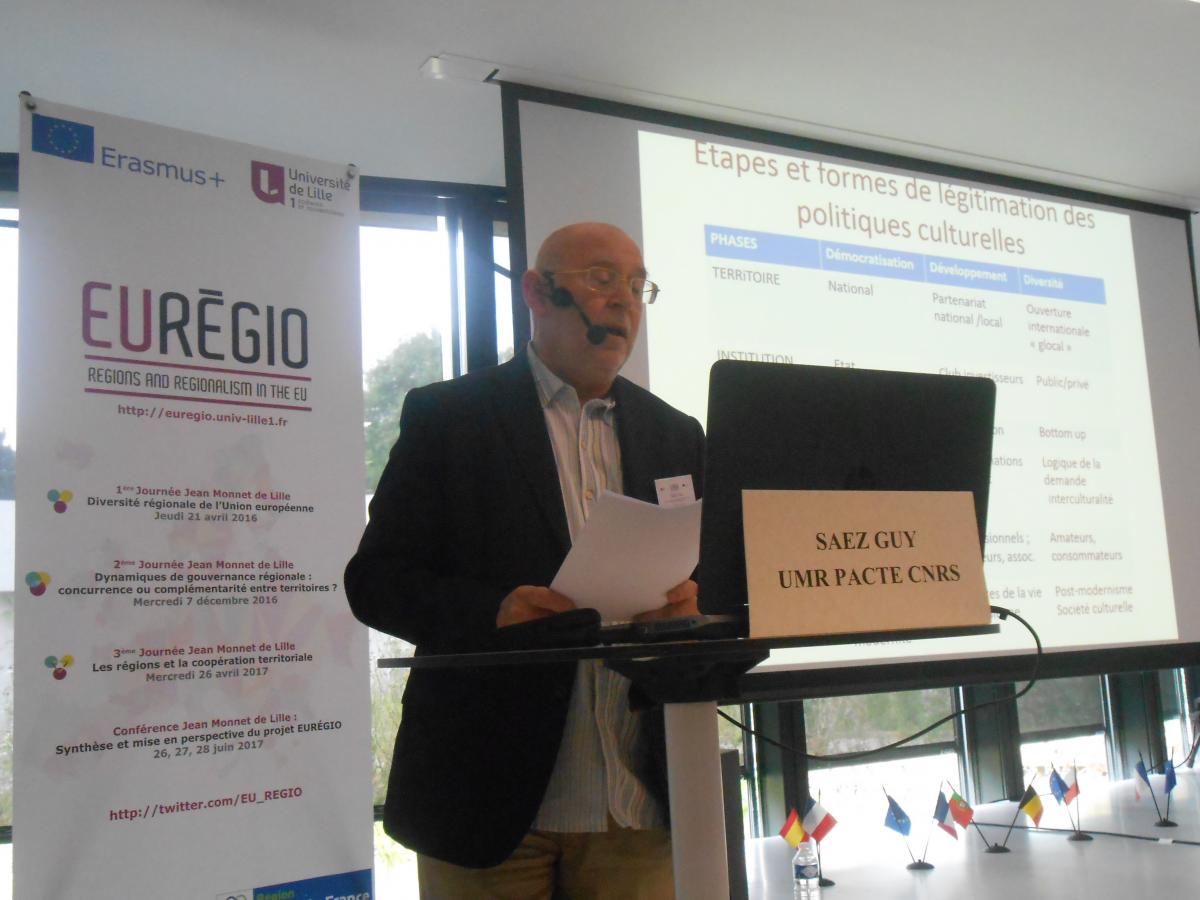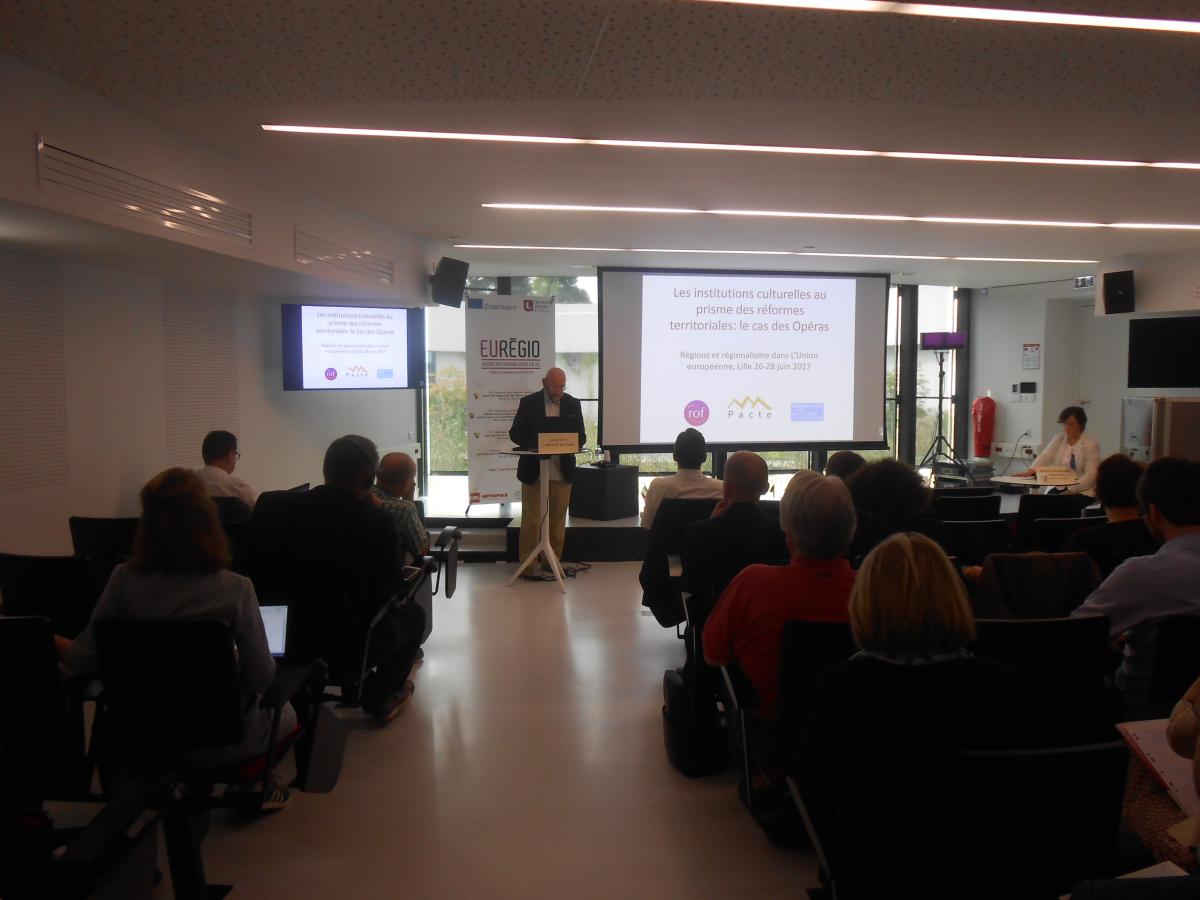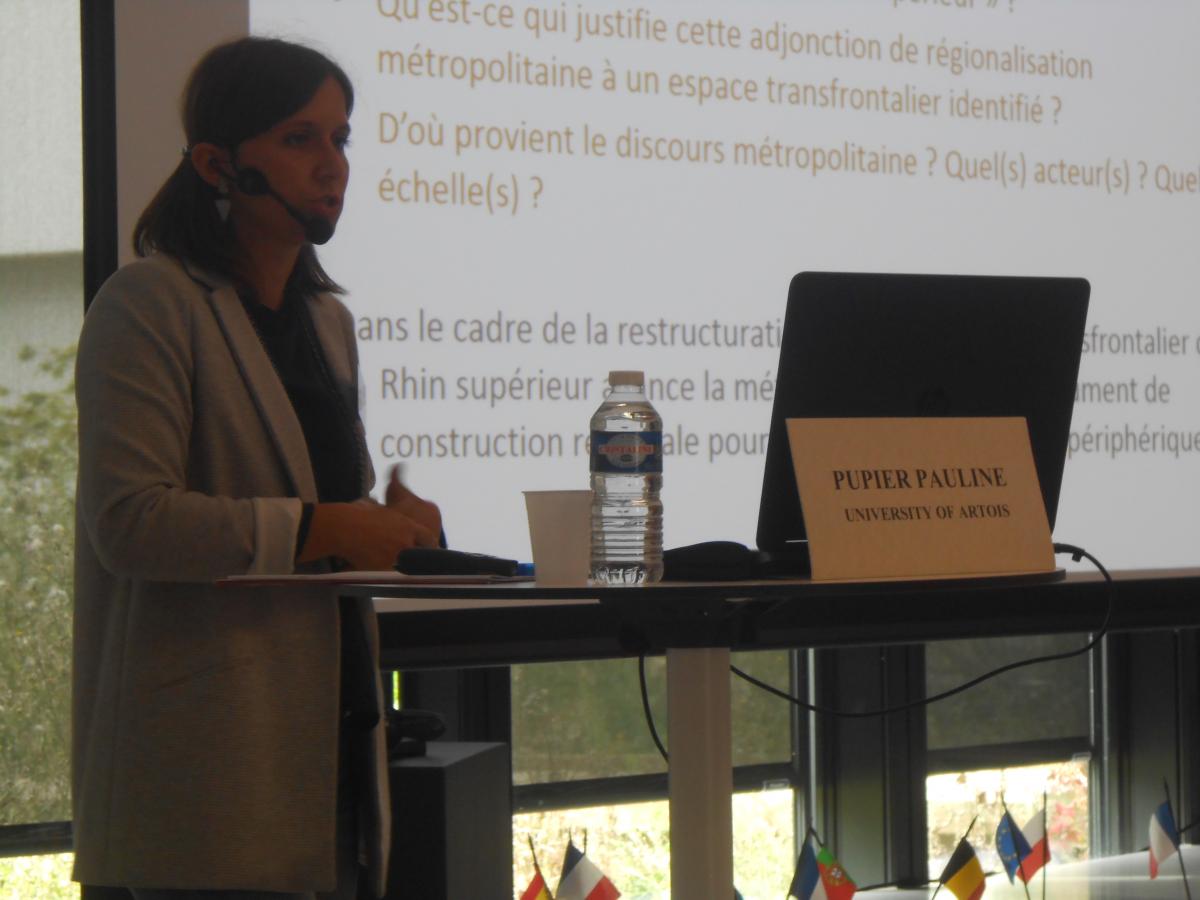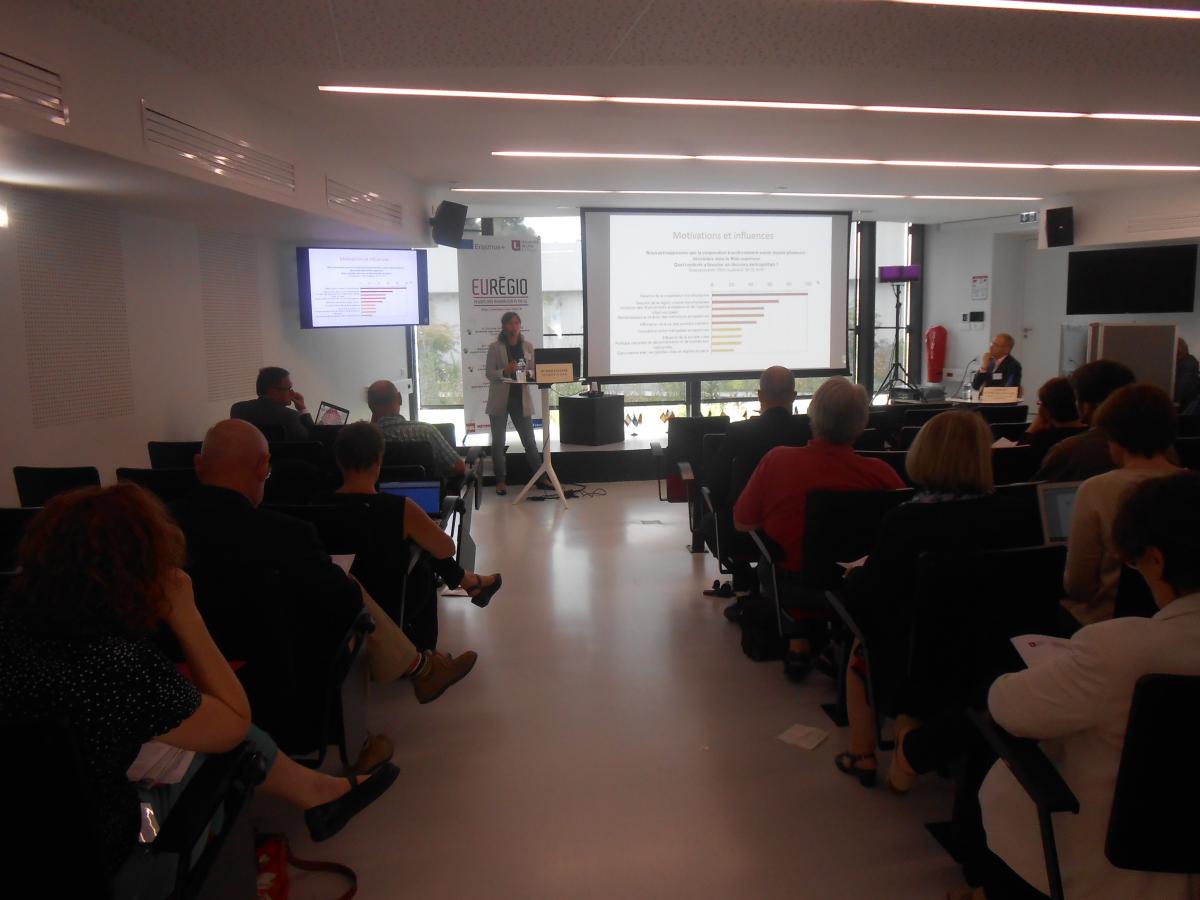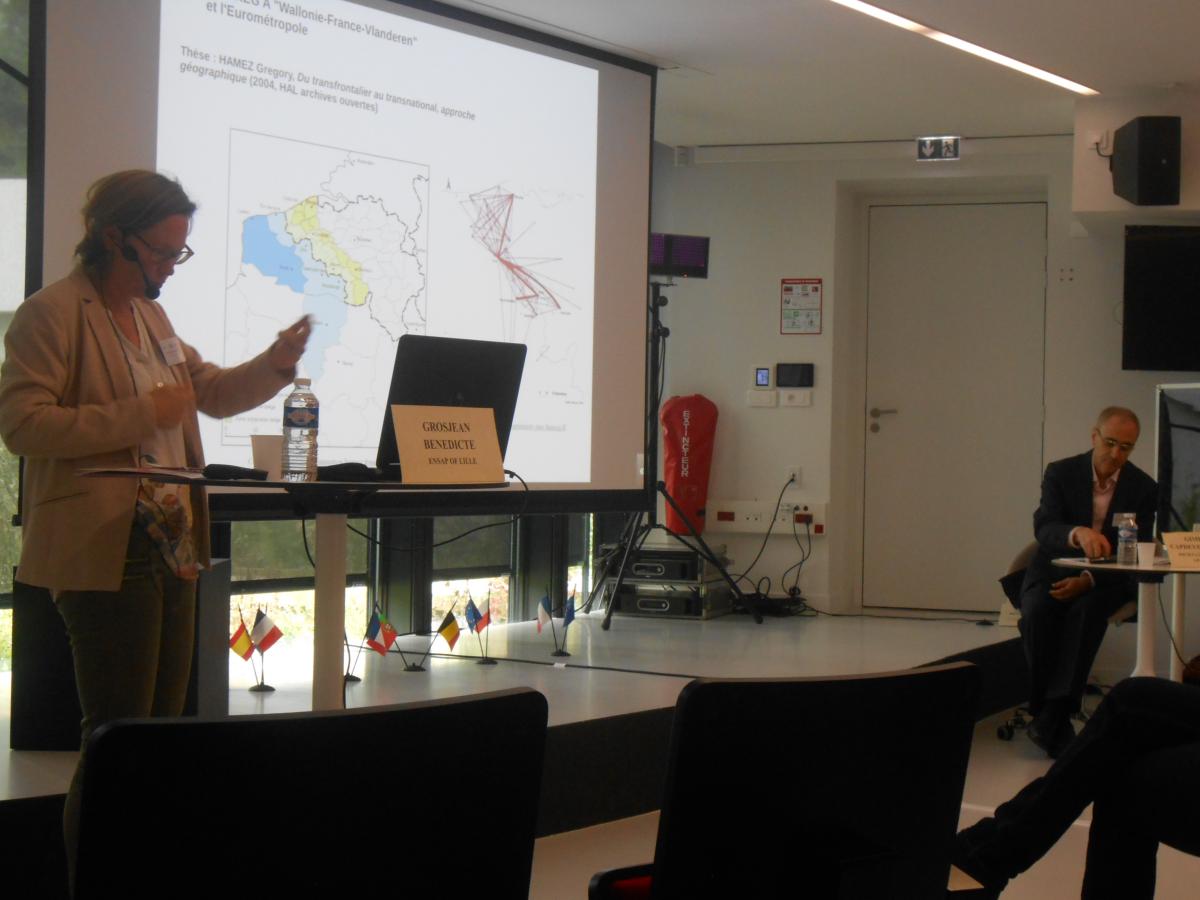Final conference
Lille Jean Monnet Conference (CJML)
► 26th, 27th, 28th June 2017
The Lille Jean Monnet Conference is the key event of the project EURÉGIO, led by the University of Lille 1 since September 2015 in the framework of the European programme Eramus + Jean Monnet, with the objective to appraise the knowledge, foster the debate and consider the evolutions of regions and regionalism in the context of the European construction.
This international conference concludes the series of events - study days, courses and workshops for students - that have reached both academic (teachers, researchers and students) and professional (local representatives and other public and civil bodies active in the field of
European cooperation).
The conference brings together international participants: researchers, experts, practitioners and representatives of public authorities and civil society. The aim is to combine discourses and experiences and to constitute a corpus of analyses and reflections that will help to appraise and put into perspective the regional fact in today European Union.
PROGRAM
(Click to download profiles and abstracts of speakers)
Monday 26th June
8h30 : Registration and welcome coffee
9h-9h30 : Welcome address
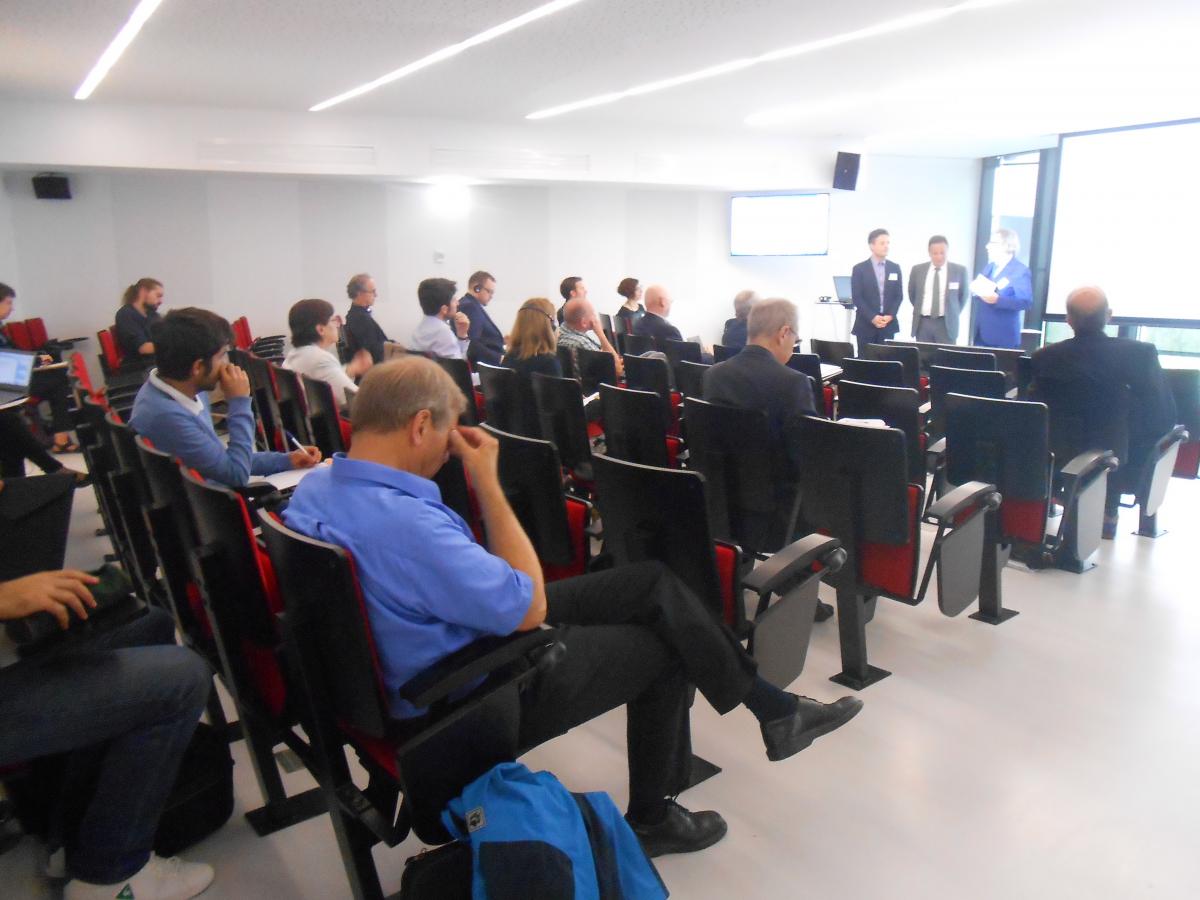
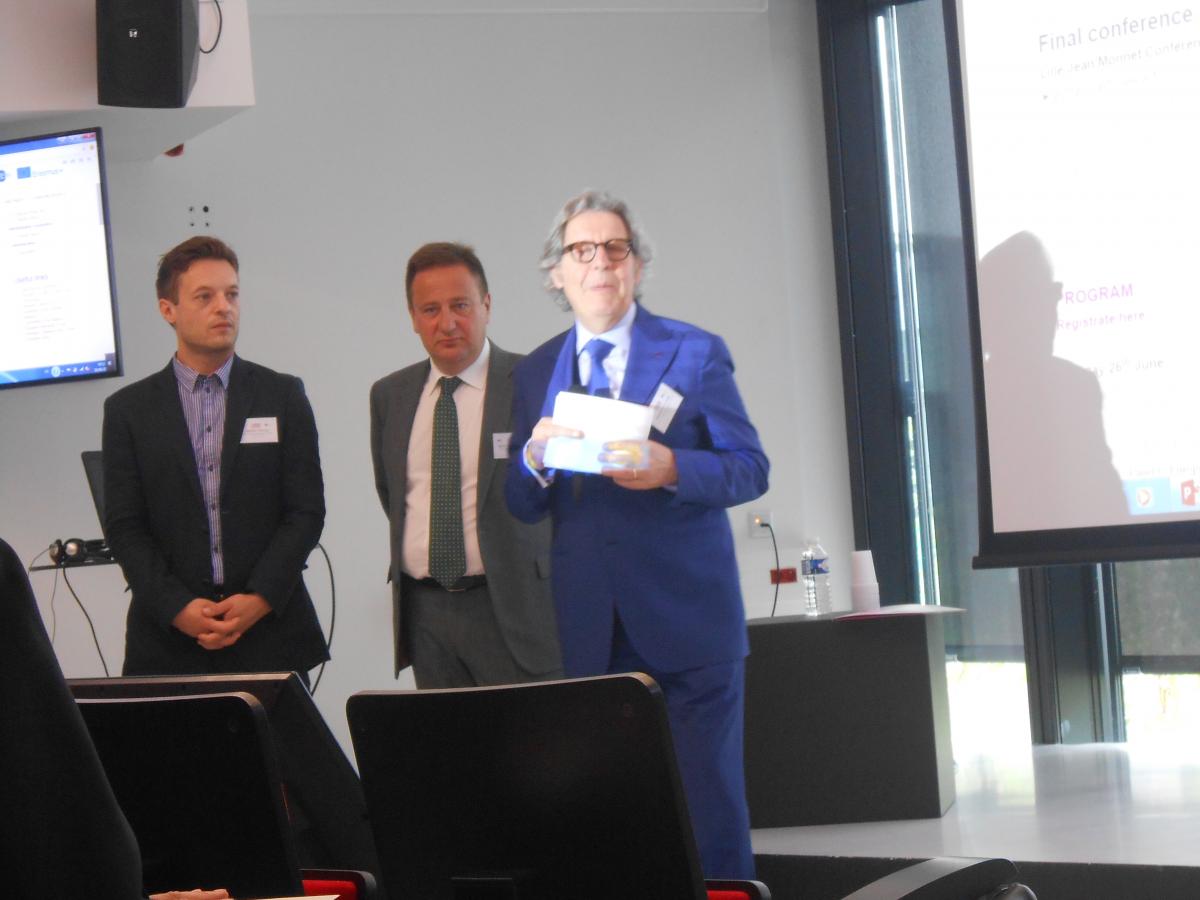
9h30-10h15 : Introductive conference « Shaping the territory in Catalonia, Scotland, and Flanders. Devolution, spatial planning and sub-state nationalism in contested European states »,
Claire Colomb, Bartlett School of Planning, University College London
This talk presents the preliminary findings of a project comparing the trajectories of spatial planning systems and policies in Scotland, Catalonia and Flanders over the past two decades, as well its potential mobilization in contemporary territorial politics and independentist discourses. Over the past three decades, a number of European states with a history of centralised governance have implemented constitutional and administrative reforms aiming at decentralising competences to their constituent regions or “historic nationalities”. This includes competences in spatial, or urban and regional planning, a form of public policy focused on the organization of the territory at different scales. This process seems to have generated significant change and reforms in spatial planning systems, policies and cultures since the 1990s, arguably leading to a variety of ‘spatial plannings’ between and within the regions and nations of a state (Haughton et al., 2009). In Flanders since 1993, in Scotland since 1999, in Catalonia since 2003, there is evidence to think that new ‘cultures of planning’ have emerged, which differ from the practices and cultures of the wider state and/or of neighbouring regions in Belgium, the UK and Spain (Nel·lo, 2012; Tomaney & Colomb, 2013, 2014; Colomb & Tomaney 2015). In the second part of the talk, we will look at the extent to which spatial planning and territorial development issues figure - explicitly or implicitly - in the current debates on devolution/independence in the 3 regions/nations. Geographers and spatial planning researchers have not focused much on separatist claims and their relationship to spatial planning and the territory (with a few exceptions). The hypothesis to be tested is whether spatial planning is mobilized, or shaped, by political parties with a nationalist or separatist agenda, who may invoke a particular ‘territorial imaginary’ or ‘collective territorial imagination’ (Peel and Lloyd, 2007) to support their vision in discourses on difference or separatism, or can potentially propose alternative visions of the territory or of the substantive principles underpinning territorial development policies.
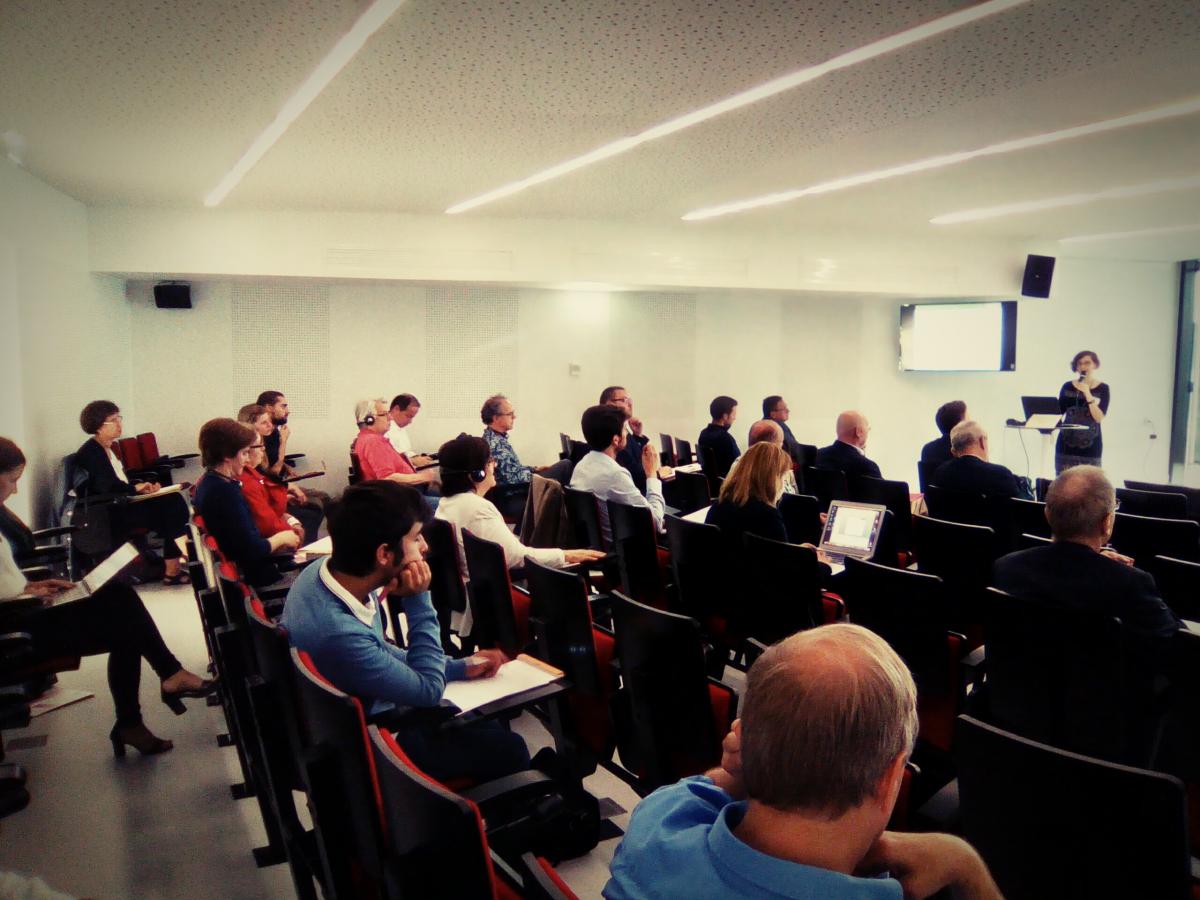
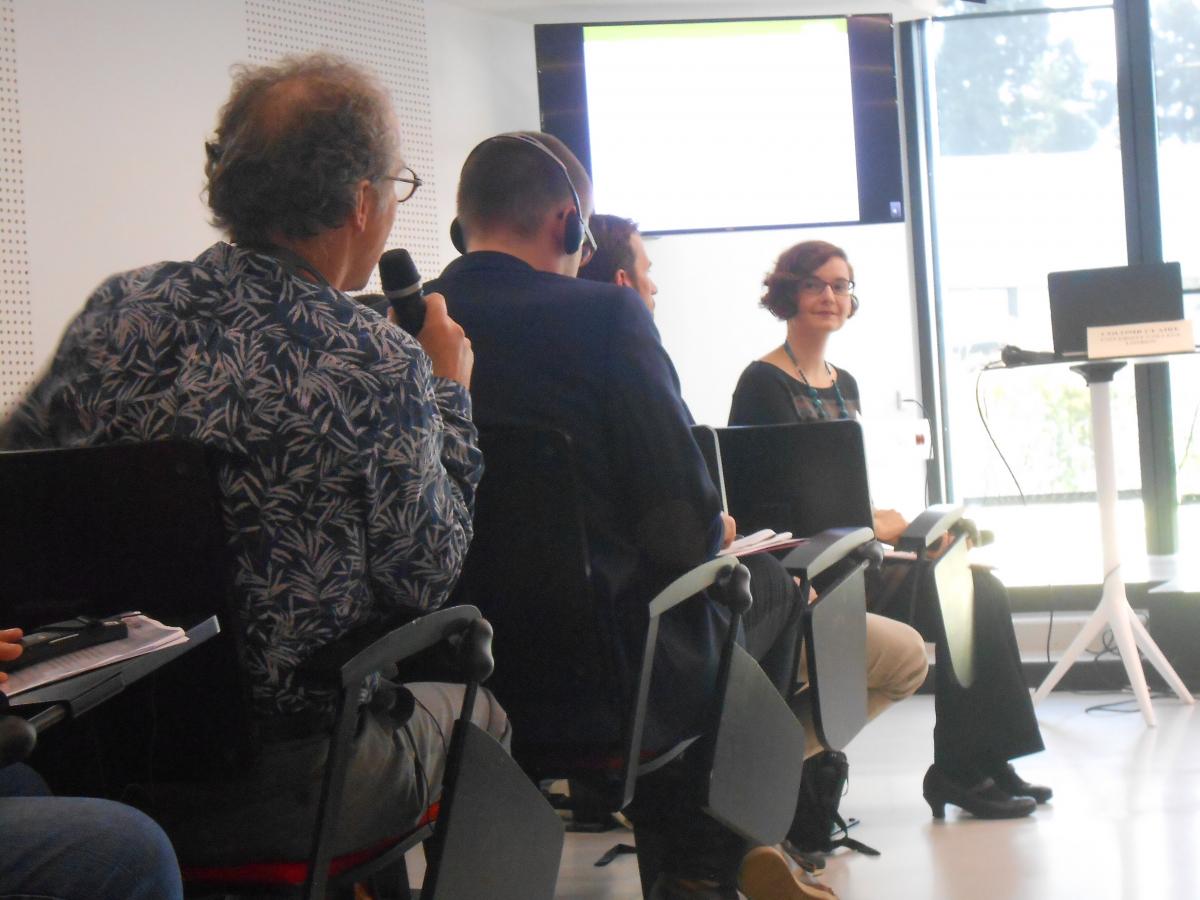
10h15-11h15 : Panel I : Europe and the regions. Concepts and realities
« Europe of the States, Europe of the Regions, Europe with the Regions »,
Carlos E. Pacheco Amaral, Jean Monnet Chair, University of the Azores
The presentation opens with the exploration of the original idea of Europe of the Regions, as presented by Denis de Rougemont, which pointed to the disintegration of the States at the hands of the Regions, as a preliminary step to the federal union of the continent. A second moment is dedicated to the erosion of this ideal and the ensuing consolidation of the Europe of the States. A third moment explores the slow, yet gradual emergence of the Regions in the European agendas.
In other words, we propose to trace the idea of Europe with the Regions, as a rule in face of the growing demands of those Regions possessing real and effective political and legislative powers of their own. First, in the realm of interregional cooperation. Secondly, in terms of their association to the European decision making process, at different levels.
Assuming a synoptic and forward-looking perspective, a concluding moment of the presentation attempts a balance of the evolution from the original project of Europe of the Regions and the contemporary reality of Europe with the Regions, drawing attention on possible future perspectives.
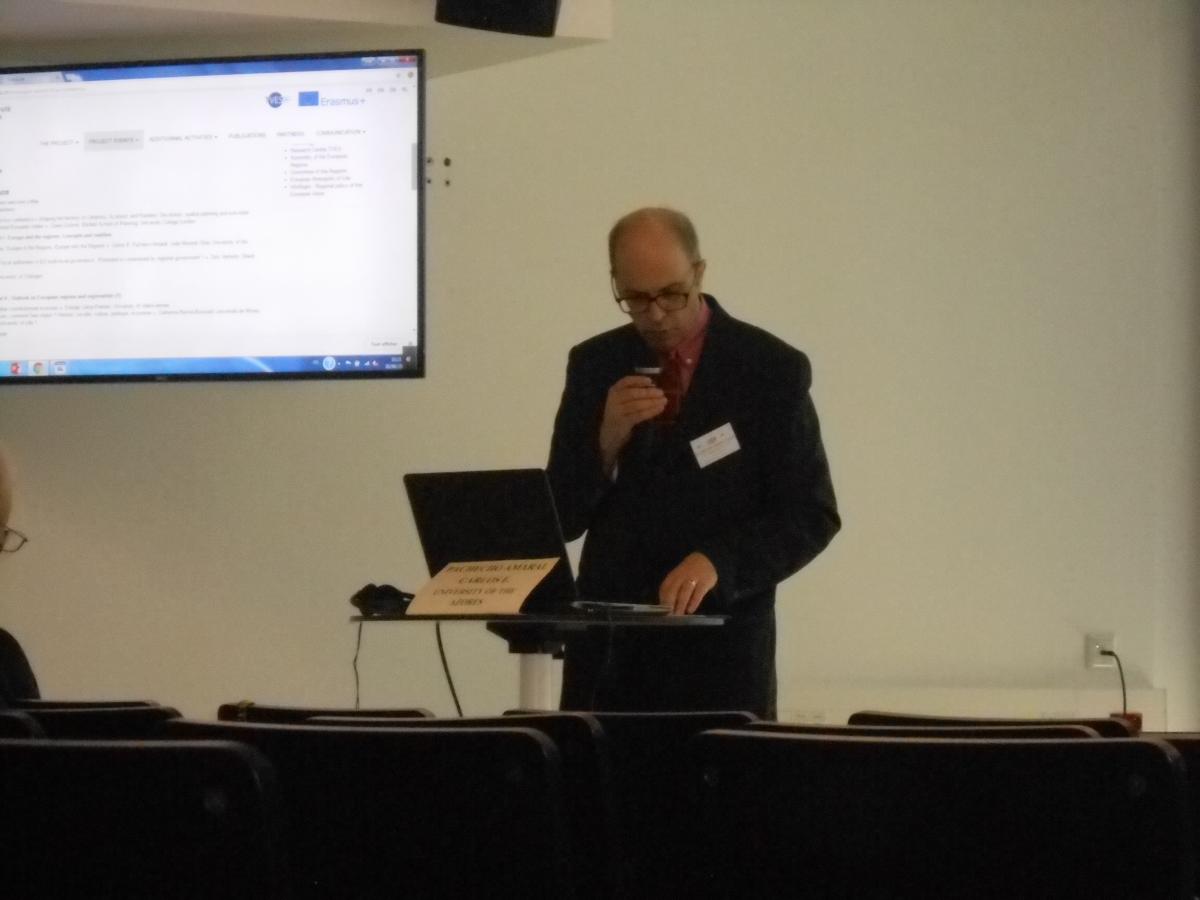
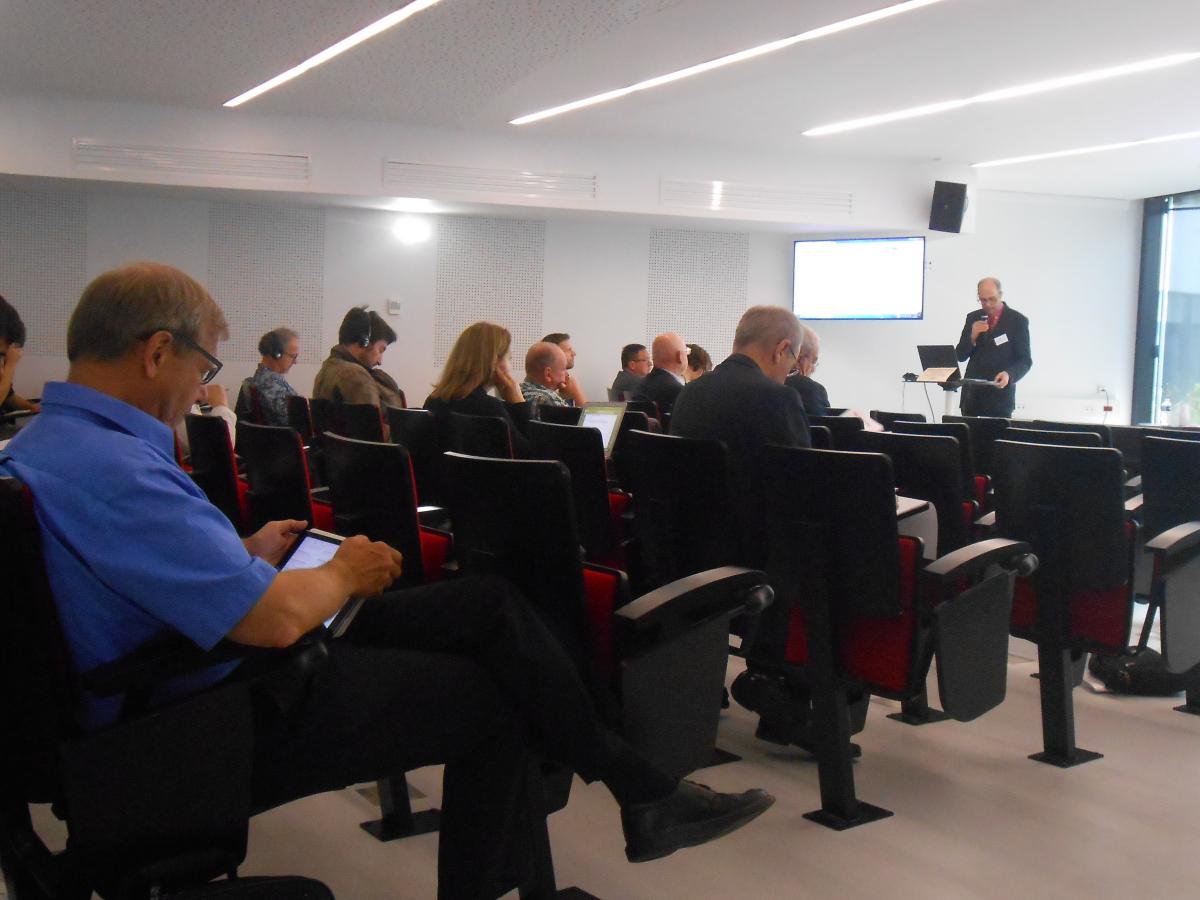
« The mobilisation of local authorities in EU multi-level governance : Promoted or constrained by regional government ? »,
Tom Verhelst, Ghent University
In the past decades the EU and local government have become increasingly connected. The reciprocal relationship between the EU and local authorities is seen, amongst others, in EU rules affecting local policy, European funding opportunities for cities and municipalities, the possibility to represent local political interests at EU level and the participation in EU networks of local authorities. These are all elements of the so-called Europeanisation of local government.
This paper analyses the Europeanisation of local government in the particular context of Eurocities, the leading network of European cities. Three basic questions are tackled: (1) ‘what is the current degree of Europeanisation of the Eurocities members?’; (2) ‘which internal patterns or mechanisms can be discerned in this Europeanisation process?’; and (3) ‘which structural elements (e.g. local autonomy, multi-level relations between different government levels) determine the Europeanisation of these cities?’.
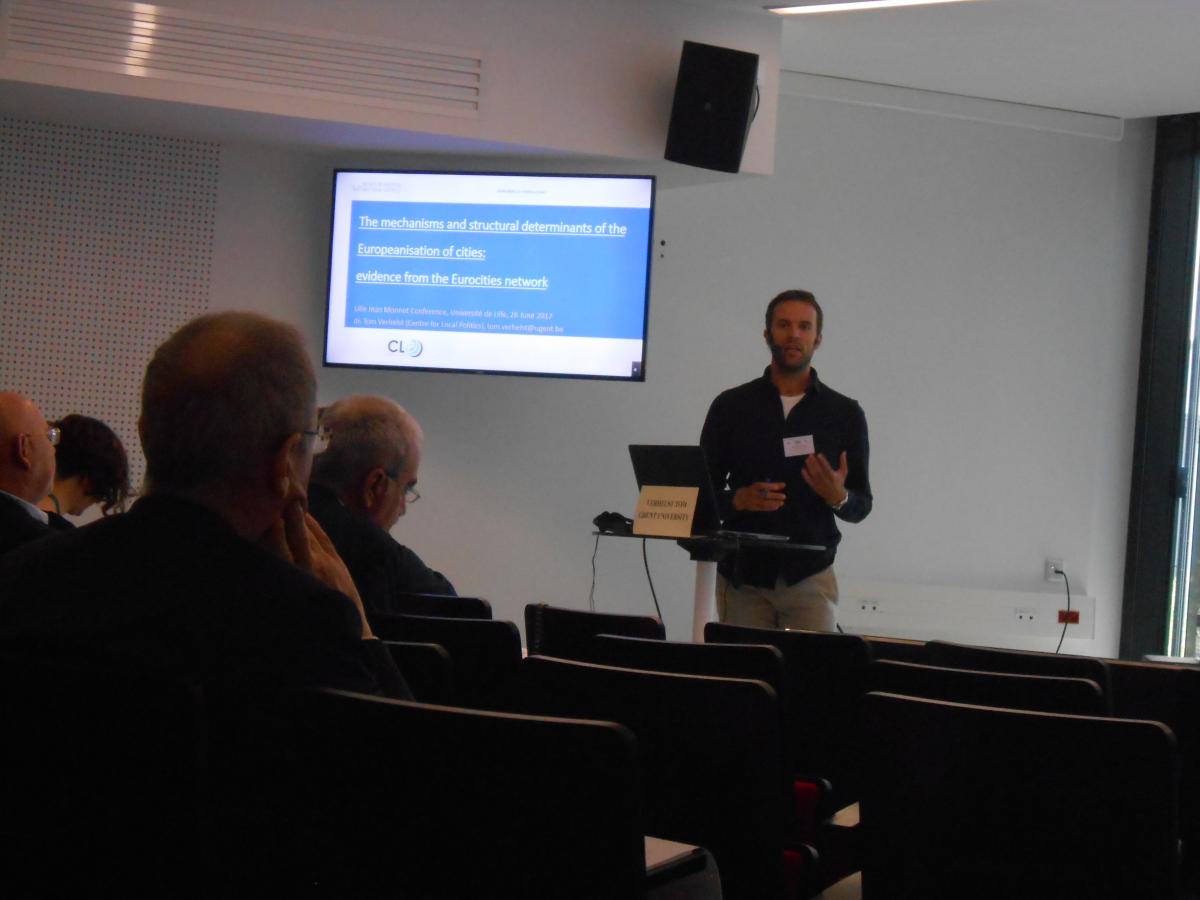
Chair : Jan Ullrich, University of Tübingen
Jan Ullrich is research associate at Tübingen University’s Institute of Political Science and the academic coordinator of the Jean Monnet Centre of Excellence PRRIDE ("Positioning Regions and Regionalism in a Democratic Europe"). He studied political science and sociology at the University of Tübingen and at the University of Washington in Seattle, USA. He earned his MA from Tübingen University, worked as a post-graduate researcher at the Berlin Graduate School of Social Sciences (BGSS) at Humboldt University, Berlin, and was a visiting scholar at Duke University, USA, and at the University of North Carolina in Chapel Hill, USA. His main area of interest is the European Union as a multi-level system of governance and its decision-making process, with a focus on interest group politics and patterns of political participation/representation.
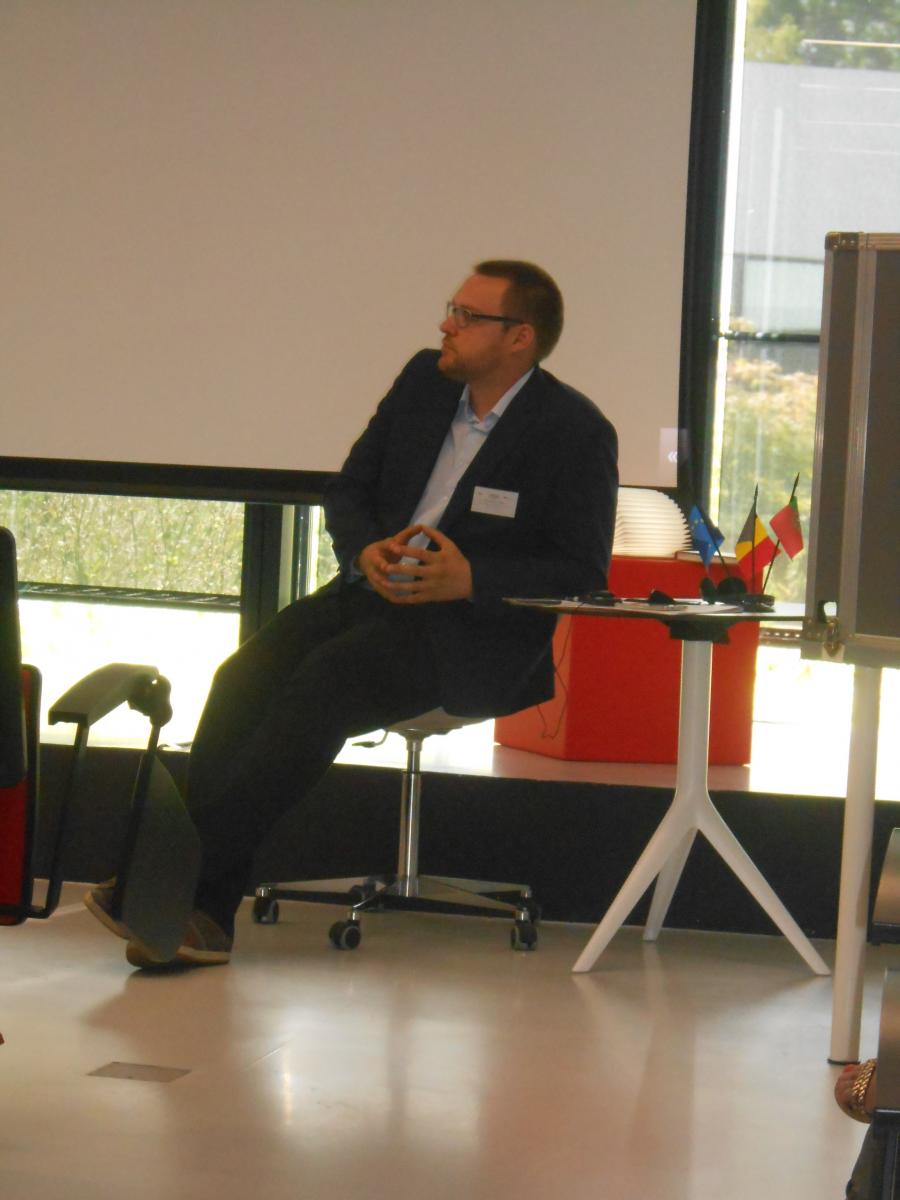
11h15-11h30 : Break
11h30-12h30 : Pannel II : Outlook on European regions and regionalism (1)
« L’Europe dans le débat constitutionnel écossais »,
Edwige Camp-Pietrain, University of Valenciennes
On June 23rd 2016, the Scots voted in favour of remaining in the EU whereas a majority of British voters opted for Brexit. As a result, the SNP-led Scottish Government has pledged that it would maintain Scotland's « place » in the EU. Yet such an aim requires full support from the British Government which deals with foreign policies and the constitution as part of the devolution settlement. Nicola Sturgeon has thus devised proposals which have so far been rejected by Theresa May. Scotland's First Minister thus argues that the only solution would be another referendum on Scotland's independence.
Constitutional issues and Europe had already become closely intertwined both in the first self-determination referendum in September 2014 and in the debates on the devolution process since the 1990s.
This paper aims at analysing through primary sources the impact of Europe on Scotland's constitutional issues. It will account for the genuinely pro-European attitudes of the Scots and their elected representatives which contrast with the rest of Great Britain's euroscepticism. Yet it will also contend that Scottish politicians - especially from the ruling SNP - are not immune from exploiting Europe to serve their constitutional purposes.
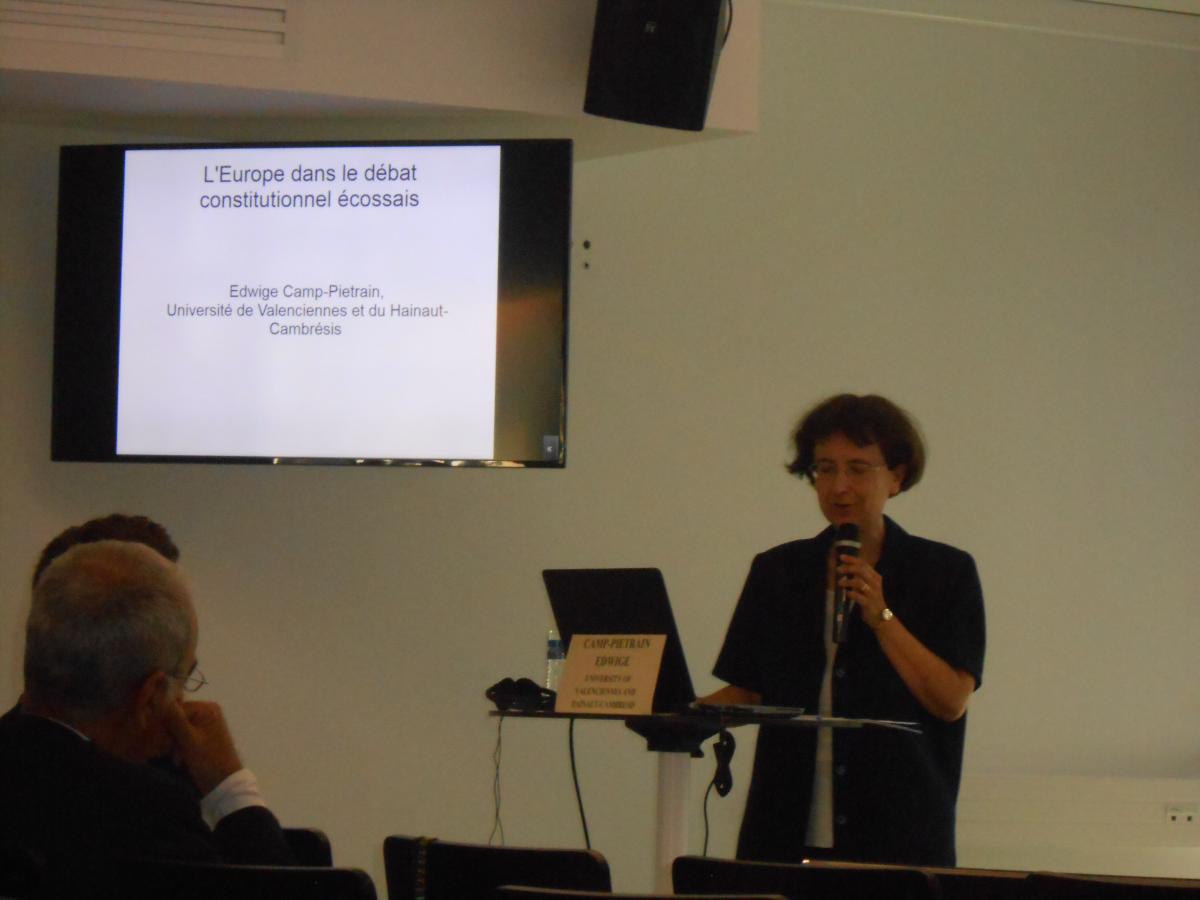
« Occitanie deux en une, comment faire région ? Histoire, société, culture, politique, économie »,
Catherine Bernié-Boissard, université de Nîmes
The creation of the new region Occitanie in France opened a debate with multiple connotations, due to the quite asserted personnalities of the previously existing regions Languedoc-Roussillon and Midi-Pyrénées. The history, culture, social forms, political relations and economic dimensions of each of the former regions will be examined in order to distinguish whether the merger is artificial or legitimate. A first look shows that this new space remains a land of diversities and contrasts, as were the two former regions. Its 13 departments offer a triple gateway. From the mountains: Massif central, Pyrenees. From the sea and the coastal plains of Roussillon and Languedoc. Finally, towards the west, a frontier opens on the basin of the Garonne. This most attractive French region offers many paradoxes: between demographic growth and unemployment and poverty rates for example. As an article in the local press observed, the history of the new region Occitanie is not a blank page. The merging between Midi-Pyrénées and Languedoc-Roussillon did not operate like a magic slate; it has not erased the pre-existing inequalities. How can these two territories create synergy?
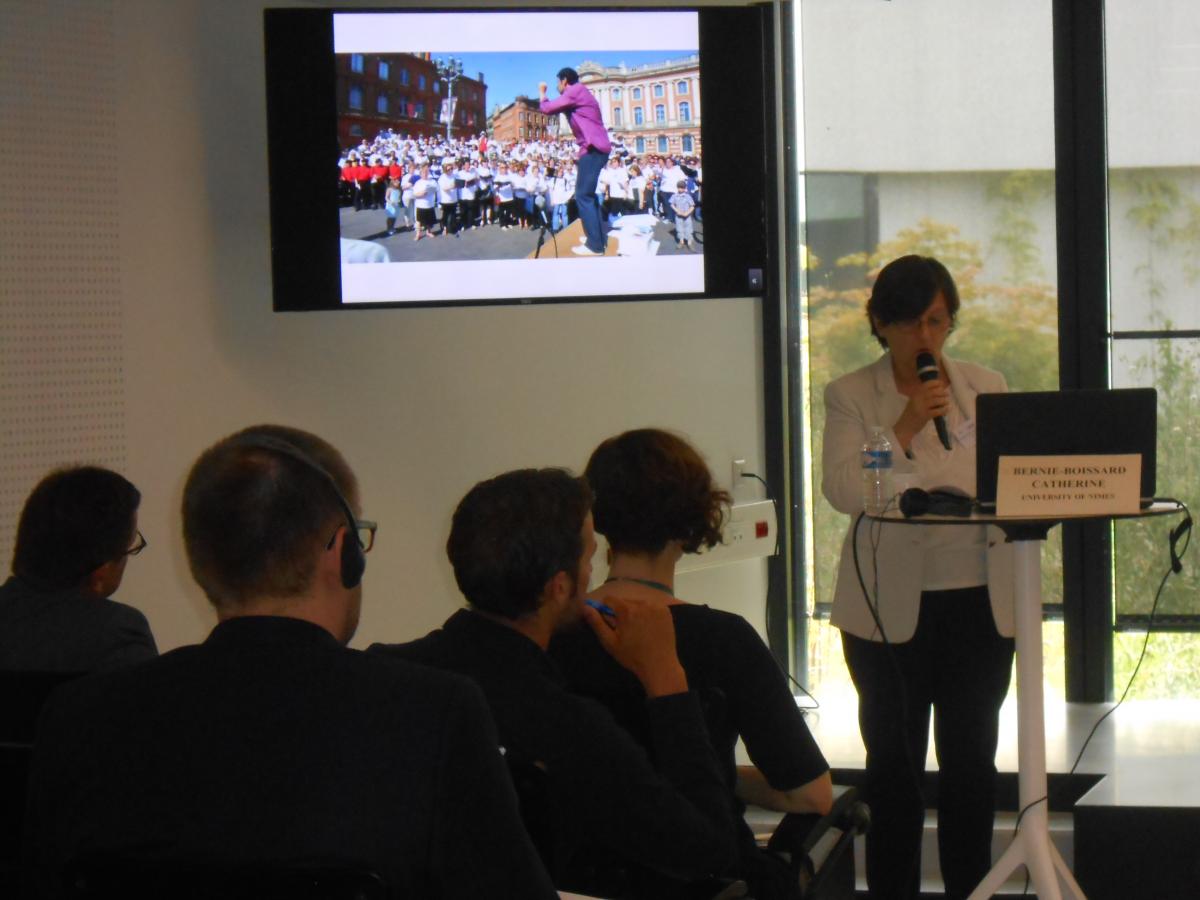
Chair : Didier Paris, University of Lille 1
Didier Paris is Professor of Urban Planning at the University of Lille (TVES. EA 4477). Former director of the UFR of Geography and spatial Planning, the Institute of Town Planning (Institut d’Aménagement et Urbanisme de Lille, IAUL), of the laboratory TVES, he was also president of the Association for the Promotion of Teaching and Research in spatial planning and Urbanism (APERAU, 2008-2012), which brings together French-speaking schools of planning, and chairman of the Lille-Metropole “Conseil de Développement” (Development Council) (2008-2014), which brings together the civil society of Lille. His research themes relate to the issues of metropolisation, metropolitan strategy and spatial planning.
12h30-14h : Lunch break
14h-16h : Panel III : Outlook on European regions and regionalism (2)
« Regionalism in a unitary state. Construction of identity in Polish western border areas »,
Elżbieta Opiłowska, University of Wroclaw
Following decades of ideological and institutional uniformity, Poland at the beginning of the 1990s has started the processes of regionalisation. At that time state structures in Poland were highly centralised and over-bureaucratised. However, the EU pressure to adopt the aquis communautaire in the pre-accession phase induced the decentralisation and regionalization process of Polish governmental system (Yoder 2003). The European Union’s cross-border cooperation policy is regarded as a key instrument to promote regional integration and identity (Bachtler 1992). Poland is the major beneficiary of the EU cohesion policy and the evaluation of the effectiveness of its implementation demonstrates that EU programmes had explicitly positive impact on Poland. The EU funds contributed to the economic and investment’s growth, internal and external economic stability and improved the labour market situation (Gorzelak & Kozak 2008). Does the cohesion policy have also an impact on development of regional identity and European identification of Polish citizens? The aim of this paper is to analyse the construction of identities in Polish western border areas. These territories have been formed after the WWII as a result of shifting the German-Polish border to the west. After the phase of Polonisation and national homogenisation, in 1990 the process of re-discovering of German historical legacy and re-construction of regional identity in the framework of European integration process has been implemented. Based on policy documents, national surveys and fieldwork this paper studies various constructions of identities in border areas.
« Entre décentralisation et autogouvernement, les conceptions de région. Une comparaison de l’organisation régionale en France et « autonomique » en Espagne »,
Rafael Gimenez-Capdevila, Societat Catalana de Geografia
The generic use of a single term to describe sub-state units in Europe often leads misleading. The term region is used both to describe a division created by a unitary state to administrate its territory, and to self-governing institutions within a federal state or by one that devolved the political autonomy of its territories. And, of course, it includes units with decentralised powers.
The recent or ongoing territorial reforms in some states such as France as well as the debates related to old national conflicts, particularly in Spain, offer an appropriate framework to describe the flexibility of the concept at a European scale. However, disparities are not only to be found among different states. Within each of them there are specificities that contribute to increasing knowledge of the regional phenomenon.
Through the analysis of the concept of region in France and Spain, useful ideas to define regions across Europe are identified.
« La nouvelle Région Grand Est face à la résistance des départements alsaciens »,
Olivier Vergne, University of Paris VIII Vincennes-Saint Denis
By the territorial reform conducted in 2014-2016, the French government intended to strengthen regional power, with biggest and “European-sized” regions, with more responsibilities. In Alsace, this reform has been rejected by a large majority of local politicians and many of them still refuse it. This reform is indeed viewed as a threat for the economy and the identity of the region, characterized by strong cultural particularities and some specific legal features among the French State. In this context, many local politicians still claim a specific political entity for Alsace region. Both Alsatian départments (Bas-Rhin and Haut-Rhin), weakened by the new sharing of responsibilities between local powers for the benefit of the new Grand Est region, refuse to abandon their power in economic matters. In the name of the defense of Alsatian interests, they plan to create a unique départments or a new local authority, as it is the case in Corsica. On the contrary, some of Alsatian local representatives are committed to the construction of the new Grand Est region, behind the president of the regional council Philippe Richert (the former president of the Alsatian regional council). That conducts to a new geopolitical configuration in Alsace, between the proponents and the opponents to the new Grand Est region, even within the political family of Les Républicains (conservatives). This analysis of the implementation of the territorial reform in Alsace will allow to lighten the geographical reflection about regionalism, et more generally about territorial reform, by showing the relationship between the sharing of responsibilities between local powers, territorial identities, territorial rivalries, challenges of economic development and territorial cohesion.
Chair : Carlo Salone, University of Turin
Carlo Salone is Full Professor of Territorial Development at the University of Turin. He taught as a visiting lecturer in France (University Paris 10), Spain (Girona, Doctoral School of Geography and Planning) and Finland (Oulu, Doctoral School of Geography), and he is currently visiting professor at the UPEC, Paris, and University Lyon 3. Until 2012 he was also director of Eu-Polis, a research institute within the Interuniversity Department of Urban and Regional Studies and Planning, University and Polytechnic of Turin. Among his relevant scientific interests the Italian way to regionalisation and New Regionalism, and the cultural economy of cities, topics on which he published papers in international journals.
16h-16h30 : Break
16h30-18h : Panel IV : Outlook on European regions and regionalism (3)
« Regions and Regionalisation in Bulgaria.Assessing the EU Integration of a New Member State »,
Emmanuelle Boulineau, University of Lyon-ENS
The presentation aims at understanding the main stakes of the regionalisation process in Bulgaria as a new EU member state. In this country, regions and regionalisation are still a very topical issue. Three main issues will be addressed according to the differents contexts of integration at national, regional and global scales, and taking into account the social, political and economical background. Firstly, what does regionalisation imply in a Balkan country where state-building is still unachieved compared to the European nation-States ? Secondly, regionalisation is still a stumbling block for this Central and Eastern country : in a context of double integration, at European and global level, how to manage the territorial gap between the need for efficient administrative regions and the raise of competitive regions sometimes disconnected of administrative limits ? Finally, in what sense does the new regional policy comply with both competitiveness and territorial equity ? A study of the EU structural funds (2007-2013) will be done.
« Les jeux d’échelle dans la communication politique des présidents des région italiennes de l’Émilie-Romagne et du Latium »,
Dorian Bernadou, University of Paris VII Diderot
Italy’s failed referendum recently highlighted the question of the place of regions in the Italian institutional landscape. Nearly twenty years ago, a series of changes to the country's Constitution marked a decisive turn toward federalism and regional level empowerment, with a President elected by direct universal suffrage. In their last political speeches, regional executives are allowed to develop a more personal and subjective vision of the region. The aim of this presentation is to understand how those political leaders are giving meaning to the regional scale, linking it in their discourses with others administrative levels, with a particular emphasis on the case of European Union.
For this purpose, I will apply lexical analysis to a corpus of 8 speeches pronounced by the newly elected presidents of the regions Emilia-Romagna and Lazio between 2000 and 2015. Different methods, such as similarity analysis, specific vocabulary analysis and clustering (descending hierarchical classification) are used to explore the structure of those political speeches and reveal the most relevant factors to explain the differences between them. The lexicometric analysis, provided by the Iramuteq software (Ratinaud, 2009), show that discourses in Emilia-Romagna use much more references to European Union than those in Lazio, which are more interested in the national scale. This could mean a difference in the Europeanness level of their political elites.
« L’activité paradiplomatique de la Catalogne »,
Jordi Gomez, University Paris II Panthéon-Assas
Since the beginning of the process of democratic transition, Catalonia has been pursuing an active external policy within the European Union. From the first stages of construction of the Euroregion in the 1980s, Catalonia appears to be the "prime contractor" of a territorial project projecting the Autonomous Community beyond the borders of the Iberian Peninsula. The restoration and consolidation of the autonomous community in the political and institutional space of Spain has been inseparable from a policy of cross-border alliances and, more broadly, a pro-European line of action. The communication aims to trace the genealogy of Catalonia's paradiplomatic activity within the EU while analyzing the benefits of all kinds that the Generalitat expects from such an investment. It will also be necessary to study the place of external action in the consolidation process of the independence project.
Chair : Véronique Vergès, Métropole européenne de Lille, University of Lille 1
Urban planner, with a background of Geography and political Sciences, and a professional carrer developed in local government, public body and public/private enterprise focused on urban planning and strategic planification.
Currently responsible of a team of 6 persons in charge of the International Relations at the Lille European Metropolis, a part of the economical development department.
In parallel, associated professor at the University of Lille, into the Urban Planning Institute, especially for the master curriculum Eurostudies.
Particularly involved in the domains of urban governance and metropolisation, related to my researches. My precise case studies are focused on France and Netherland, related to my topic of PhD.
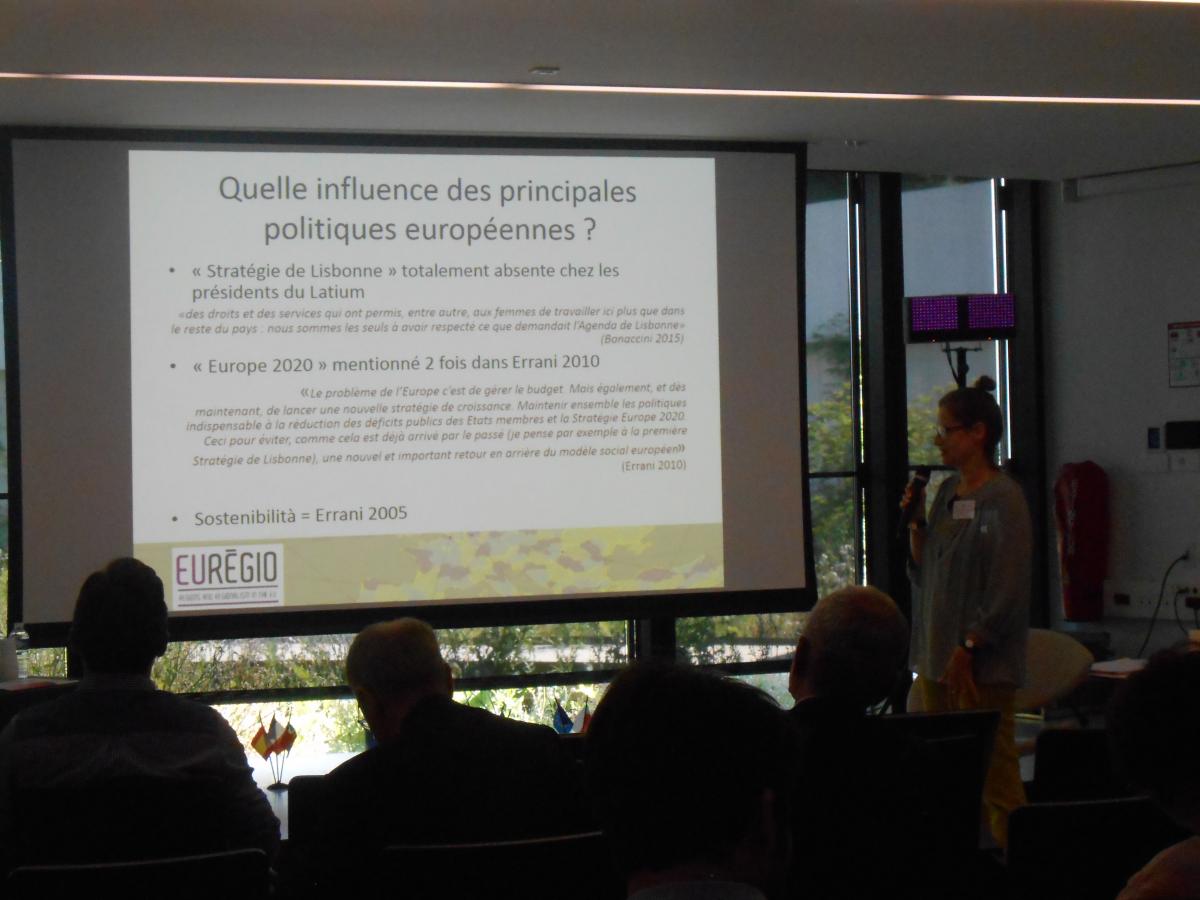
Tuesday 27th June
9h : Registration and welcome coffee
9h30-11h : Panel V : Regional policies, policie within regions
« La contribution des collectivités locales à la transposition des directives. Vers une acceptabilité renforcée de la norme européenne ? »,
Amalia Mitselou, University of Paris II Panthéon-Assas
According to the case-law of the Court of Justice, “each Member State is free to delegate powers to its domestic authorities as it considers fit and to implement the directive by means of measures adopted by regional or local authorities”. Indeed, the European Union law pretends to adopt a position of neutrality with regard to the internal distribution of powers.
However, it turns out that the particular characteristics of the transposition process influence, indirectly and to a variable degree depending on the system of government practiced, the normative power distribution between central and sub-state authorities. The issue at hand is whether the transposition of European directives tends to support rather the centralization than the decentralization of normative power at the internal level.
The dialectic relationship between the principle of institutional autonomy and the principle of subsidiarity, finally, leads us to reconsider the theoretical foundations, the perils and the gain emerging from the normative involvement of the sub-state entities when transposing European directives. Would it not, ultimately, be a useful means of getting closer to the idea of a Europe of the Regions?
« Les institutions culturelles au prisme des réformes territoriales : le cas des Opéras »,
Guy Saez, UMR PACTE CNRS
Opera is one of the oldest, most structured and homogeneous art that can be found today within the great series of artworlds. This specific position is based on a convention of exceptionalism. Opera is an exceptional art, because it brings together several artistic expression and because its aesthetic tradition is very ancient. It is exceptional in financial terms - as one of the most costly arts in its normal operation - and it continues to focus on exceptional people in so far as they assert themselves to be part of a social elite through participation to this art. Today, this exceptionalism faces a number of social, political and artistic changes that are drastically abolishing its privileges. Exceptionalism becomes a handicap rather than a privilege, and the survival strategy is rather to bring the opera closer to the general world of cultural policies, to make it follow a number of regular functioning conditions of cultural policies. The two recent territorial reforms in France (Maptam and NOTRe) and the ambitious reform initiated by the Law on the Freedom of Creation, Architecture and Heritage (LCAP) are both legal instruments, political opportunities and pretexts that stakeholders use to modify the whole institutional system of the opera in France. This paper, based on field research in two newly created regions (Grand Est and Nouvelle Aquitaine), shows how metropolitan and regional reforms produce contradictory expectations. It demonstrates in particular that the dialectic metropolisation / regionalization has not been considered as a major issue for a better policy coherence. Despite these uncertainties, the world of opera start to metamorphose by marrying, with limited successes so far, the most current repertoire of cultural policies (modern management, audience development, participation and the rise of cultural rights, digital issues ...).
« Transfert des fonds européens et affirmation du pouvoir régional. L’exemple des investissements territoriaux intégrés en Île-de-France »,
Brice Lamenie, University of Paris VII-Diderot
The role of the regional level has been evolving since the last territorial reform of January 27, 2014 with the transfer of two thirds EU Cohesion policy funds to the Regional Councils.These changes introduce a new kind of connections between local and regional authorities.Through a specific focus on the urban dimension of the EU Cohesion Policy, we are more interested in the relationship between the regional level and the other local and regional authorities.My topic is related to the governance of the urban dimension of EU Cohesion Policy and its effects on local governments and policies. My research seeks to understand "Europeanization" as strategic process.Through the specific case of the Ile de France region, also called "Paris Region", one of Europa's wealthiest regions, we would discuss the implementation of the EU Cohesion Policy at local levels not only in the particular case of France but also within a Global city context. We would also point out the way how the EU has been involved in the major territorial changes.
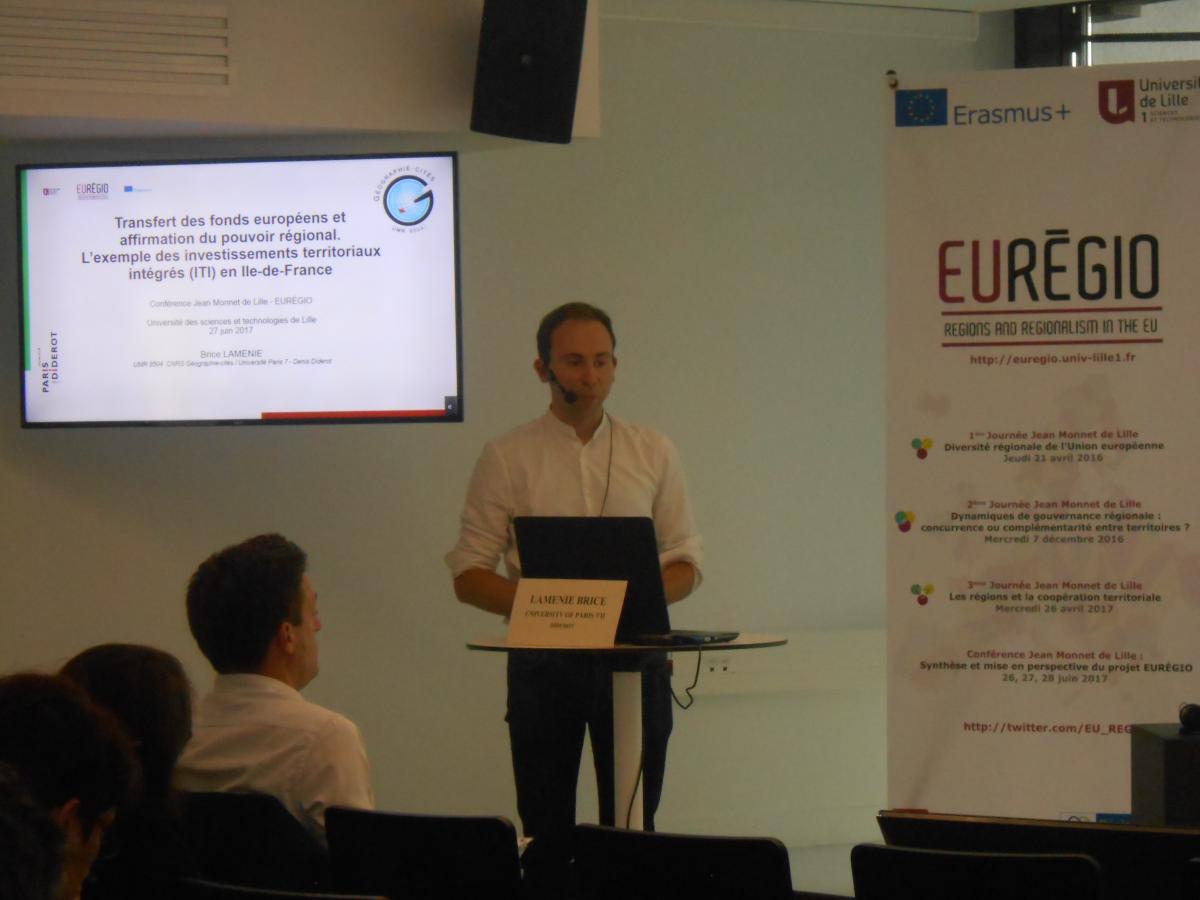
Modération : Catherine Bernié Boissard, University of Nîmes
My researches deal with contemporary urbanism and cities, like for instance in recent publications, Montpellier, la ville inventée (ed. Parenthèses, in collaboration), Des mots qui font la ville (ed. La Dispute). I also work on urban planning and cultural territorial development, in France and lastly in China. These works question the representation of cities from literature, and the construction of cities based on fieldworks. They are implemented at two level : participation or coordination of research programmes, publications, field studies.
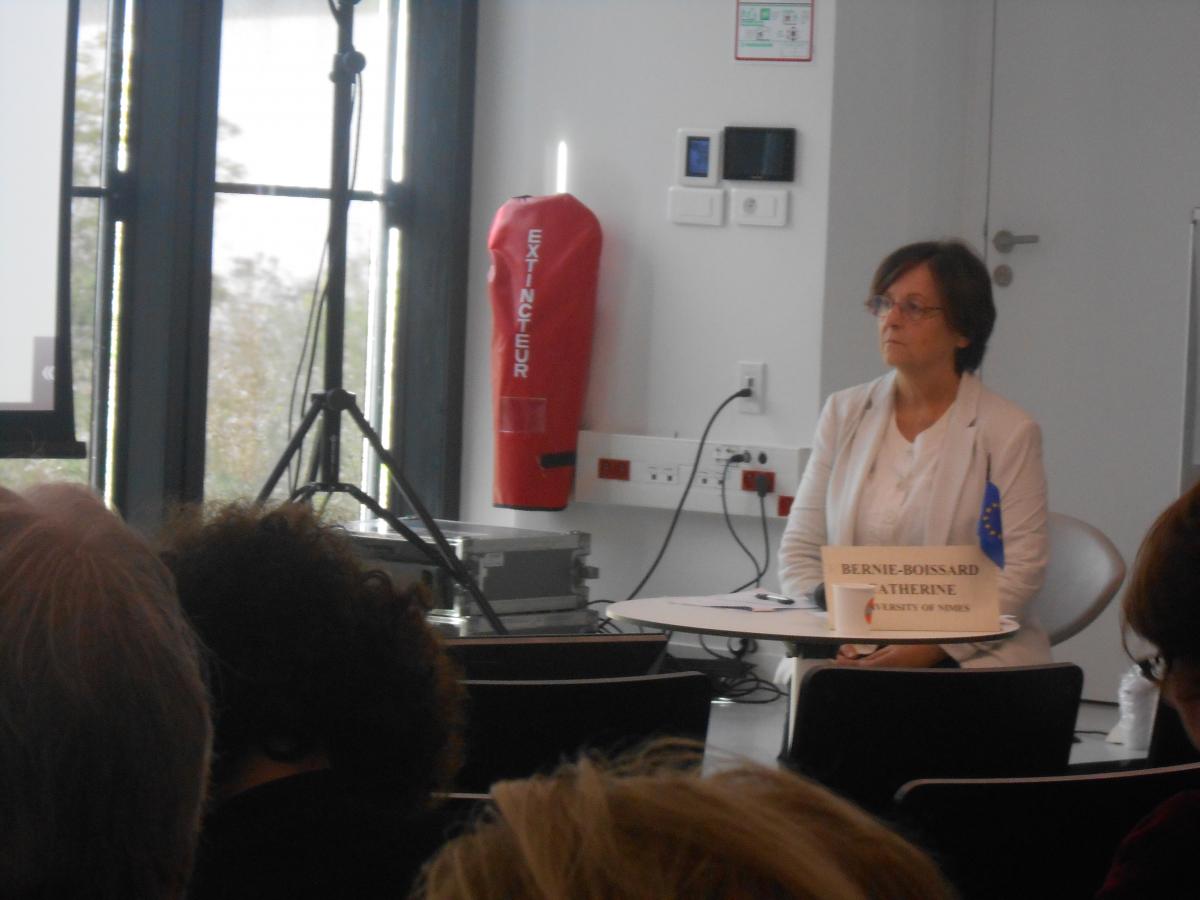
11h-11h30 : Break
11h30-13h : Panel VI : Cross-border regions, euroregions. New scale for new regions ?
« Le Rhin supérieur : la construction d’une région métropolitaine transfrontalière »,
Pauline Pupier, University of Artois
The Upper Rhine Conference launched 2009 a strategy called “trinational metropolitan region” which aims to facilitate networking between actors of the territory between Switzerland, Germany and France. This programmatic strategy builds on the hypothesis of an integrated cross-border region with metropolitan potentials. It relies on a high populated area in the Rhine valley, organised into a string of large and medium-sized cities. However, the strategy does not only refer to metropolitanisation as the concentration process of people and activities. It also considers political and symbolic functions. The long common history of the area and the decades of cross-border cooperation are less at the core of discourses, while metropolitanisation is presented as a factor of regional construction.
The Upper Rhine uses the word ‘region’ very differently than the definition of a local authority and of a subnational entity. Which reasons justify the regional denomination?
How do the European Union and its cohesion policy influence this process? How do institutional regions (Alsace and Grand Est, Länder Baden-Württemberg and Rhineland-Palatine) (re-)act in the regional building process of the Upper Rhine?
« L’imagibilité de l’Eurométropole Lille-Kortrijk-Tournai : la place des régions »,
Bénédicte Grosjean, ENSAP of Lille
The problematic in which this proposal fits is that of the images and pictures of the Eurométropole Lille-Kortrijk-Tournai. This territory, the first to form an EGTC in 2008, straddles three political regions: Wallonia, Flanders and Hauts de France. Although already strongly institutionalized, it is still under construction as an entity really readable by its inhabitants, visible from the outside and coherent for its actors : Eurométropole is still struggling to be (re)present.
This research, a chapter of an ongoing HDR, focuses then on its iconography, on the spatial representations of this territory, produced by and for this institution in its various phases since 1991 (foundation of COPIT) and by various disciplines (geographers, Landscape planners, historians, marketing, etc.).
This paper questions, on the one hand, the visibility of Eurométropole in regional planning documents; and on the other hand, the presence of "regions" in cross-border representations. In particular, it asks in which sense "regions" are convened (geographical features, historical coherence, political divisions, etc.); and what "images", shape or patterns, of the territory they contribute to build.
« Les eurorégions dans le discours de presse : analyse des procédés sémiodiscursifs de séduction des publics médiatiques »,
Marie-Hélène Hermand, Université libre de Bruxelles
From a multilingual corpus composed of on-line press articles published about the Euroregions (177 articles, 117 878 words), we will observe how media discourses are able to focus people's minds on these little known cross-border entities. We will examine the salient elements of the “media communication contract” (Charaudeau, 1997) using a computer model adapted to a multilingual on-line corpus where textometric results will be combined to provide qualitative discourse analysis. We will also observe some characteristics of the euroregional “semiotic script” (Stockinger, 2005) emerging on the on-line press.
Three discursive mechanisms will be analyzed. First, a strong scrutiny of the legacy of the “eurolect” (Goffin, 2005) will serve to estimate if the euroregional mediation is facilitated or limited. Then the “reported speech” (Rosier, 1999) will be observed to show how complex identities that are seeking “visibility” (Voirol, 2005) are sporadically recognized. Finally the detection of the references to “creativity” (Andonova, 2015) will highlight the dynamic process of the “symbolic planning” (Bouquillion et Le Corf, 2010) of the euroregions. These analyses lead to specify the opportunities to draw the public's attention (Citton, 2014).
Modération : Rafael Giménez-Capdevila, officer of cross-border cooperation, Generalitat de Catalunya
Rafael Giménez-Capdevila is graduate in Geography by Universitat de Barcelona. PhD in Transport by the École Nationale des Ponts et Chaussées, Paris.
Civil servant of the Generalitat of Catalonia. He worked at the Catalan Institute for Transport Development; at the Territorial Studies Institute (a consortium between Generalitat of Catalonia and Universitat Pompeu Fabra); at the Barcelona City Council International Relations and Cooperation directorate and, now, at the Generalitat of Catalonia Multilateral and European Affairs general directorate.
He is also Board Secretary of the Catalan Society of Geography (Catalan Studies Institute), founding Board of the Urbs i Territori Ildefons Cerdà Foundation (FUTIC) and Board Secretary of “Diàleg”, the association of French-Catalan friendship.
13h-14h : Lunch break
14h-16h : Round table : Perspectives and challenges of regions and regionalism in the current European Union
Gilles Pargneaux, MEP
Gilles Pargneaux was born on March 24th 1957 at Harcigny in region Hauts-de-France. He is Member of European Parliament for North-West France since 2009. He is the vice-chair of the committee on the Environment, Public Health and Food Safety, member of the committees Foreign Affairs, Budgetary Control and of the subcommittee on Security and Defence.
As MEP he was rapporteur on the Decision on serious cross-border threats to health, co-writer of the Resolution on the food crisis, fraud in the food chain and the control thereof, and fought against the liberalisation of rail industry. He was also rapporteur for the European Parliament resolution about COP21 “Towards a new international climate agreement in Paris”, which defined the position of the European Parliament towards the international negotiation on climate that were hold in Paris from December 7th to 11th, 2015. Gilles Pargneaux was also a member of the European parliamentary delegation to the Paris COP21.
Particularly concerned with the issues of cooperation between the EU, the Maghreb and the Mashreq, he is chair of the EU-Morocco friendship group, vice-chair of the European Parliament delegation for relations with the Mashreq countries and member of the delegation for relations with the Maghreb countries and the Arab Maghreb Union. He currently chairs the PS group at the Métropole européenne de Lille and is metropolitan councillor in charge of Europe and the European funds.
Dr. Dominik Fanatico, vice-director of bilateral relations in UE, Land of North-Rhine-Westpahlia
Dr. Dominik Fanatico studied law at the Universities of Münster (Germany), Paris X-Nanterre (France), Georgetown and San Diego (USA). He obtained his Maîtrise en droit in 2001 followed by his German state examinations in 2004 and 2007. His PhD thesis on comparative Anglo-American and German law, entitled “Duty to Rescue”, was the result of his studies as research associate at the University of Münster and the State parliament of North Rhine-Westphalia. Between 2007 and 2011 he worked as lawyer in a law firm and in a non-profit, independent technical expert organization for research and analysis. From 2011 to 2013 he served as head of department in the financial administration of the federal state North Rhine-Westphalia. He was then selected for advanced training at the french “École Nationale d’Administration (ENA)” where he graduated in 2014. Thereafter, he worked at the representation of North Rhine-Westphalia in Brussels until 2015, being responsible for the financial affairs between the federal state and the European Union. Since 2016 he serves as deputy head of the department for “Bilateral relations within the EU, Regional Triangle of Weimar” at the State Chancellery of North Rhine-Westphalia.
Martí Anglada, delegate of Catalonia in France
Martí Anglada i Birulés graduated in Law and Information Sciences from the Autonomous University of Barcelona. Since 1976, he was a journalist in foreign and international affairs. He was correspondent of La Vanguardia in the Middle East, Italy and the Vatican. He was the first correspondent of Catalan TVC in Madrid and Washington DC, and then TV3 correspondent in Brussels and Berlin. He won the 2011 Udina Prize at the APEC (Association of European Journalists of Catalonia). He published Afers (no tan) estrangers (Ed Mina, Grup 62, 2008), Quatre vies per a la Independència: Estònia, Letònia, Eslovàquia i Eslovènia (Ed. Pòrtic, Grup 62, 2013) and recently La via alemanya (Brau, 2014).
Discussant : Anne-Cécile Douillet, University of Lille 2
Anne-Cécile Douillet is Professor of political Science at University of Lille, member of the Lille Center for European Research on Administration, Politics and Society (CERAPS). Her works deal with justice and police but mainly with local public policies, especially local development policies and public security policies (CCTV, relationships between municipal authorities and Justice…). She recently published, with Rémi Lefebvre, Sociologie politique du pouvoir local (Armand Colin, 2017) ; « Les élus locaux sont-ils des experts de l’action publique ? » (in Expert(ise) et action publique locale, edited by François Benchendikh) and co-edited a special issue of Cultures et Confits on “Night policies and politics”.
16h-16h30 : Break
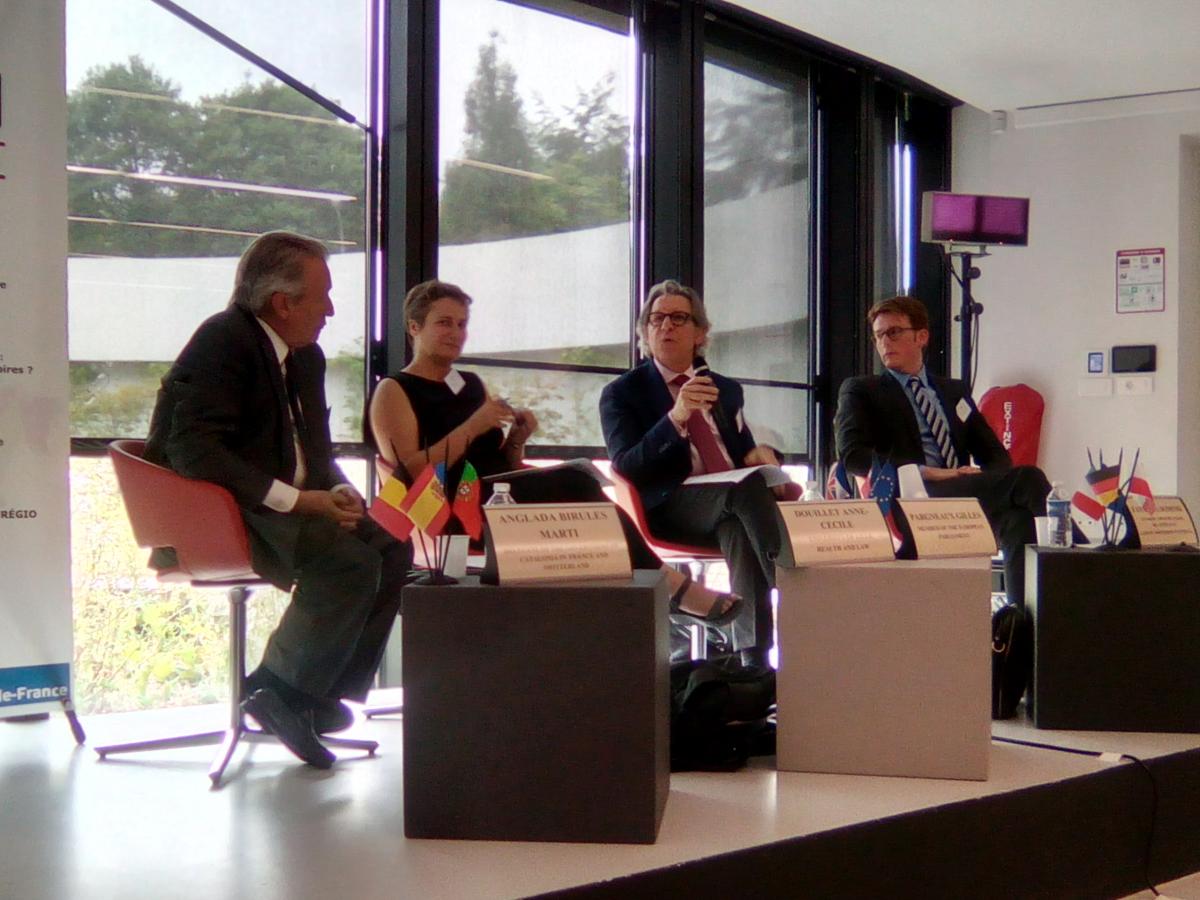
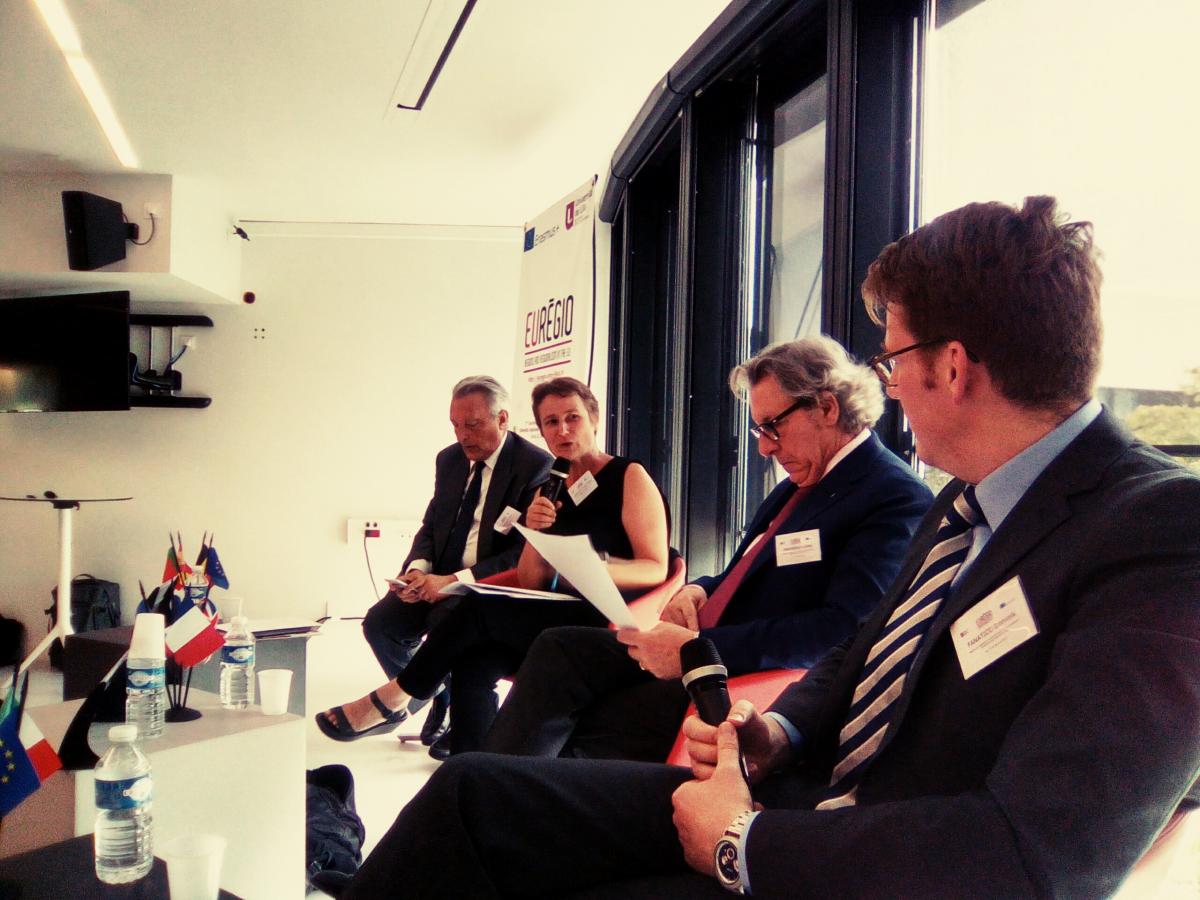
16h30-18h : Presentation of the Special Issue « L’Europe des régions. Quel retour ? », journal Pôle Sud.
With the editors and some authors of the Special Issue
http://pole-sud.edu.umontpellier.fr
In memoriam Francesc Morata i Tierra (1949-2014), professor at Universitat Autònoma de Barcelona
Founded in 1994, Pôle Sud. A South European Political Journal is a bi-annual academic journal sponsored by the CNRS (South European Center for Political Studies – CEPEL), as well as the Faculty of Law and Political Science of the University of Montpellier. It publishes research in political science with an emphasis, since its creation, on Southern Europe. These include work on regimes, culture, and elections, as well as the analysis of public policy and comparative studies. Each issue is normally made up of a thematic dossier (« Thema ») as well as stand-alone articles (« Arena ») and book reviews (« Lectures »). Some issues also contain accounts of recent South European elections. Pôle Sud is governed by a seven-member editorial board assisted by an international scientific advisory board of approximately twenty members. As a peer-reviewed journal all articles are subject to anonymous review by two outside experts. It is among the journals taken into account by the French Agency for the Evaluation of Research and Higher Education (AERES). It is published both in hard copy and in digital format accessible through Persée and Cairn.
Pôle Sud is indexed by Sociological Abstracts (USA) and, in Germany, by Zeller Dietrich Bibliographische Verlag.
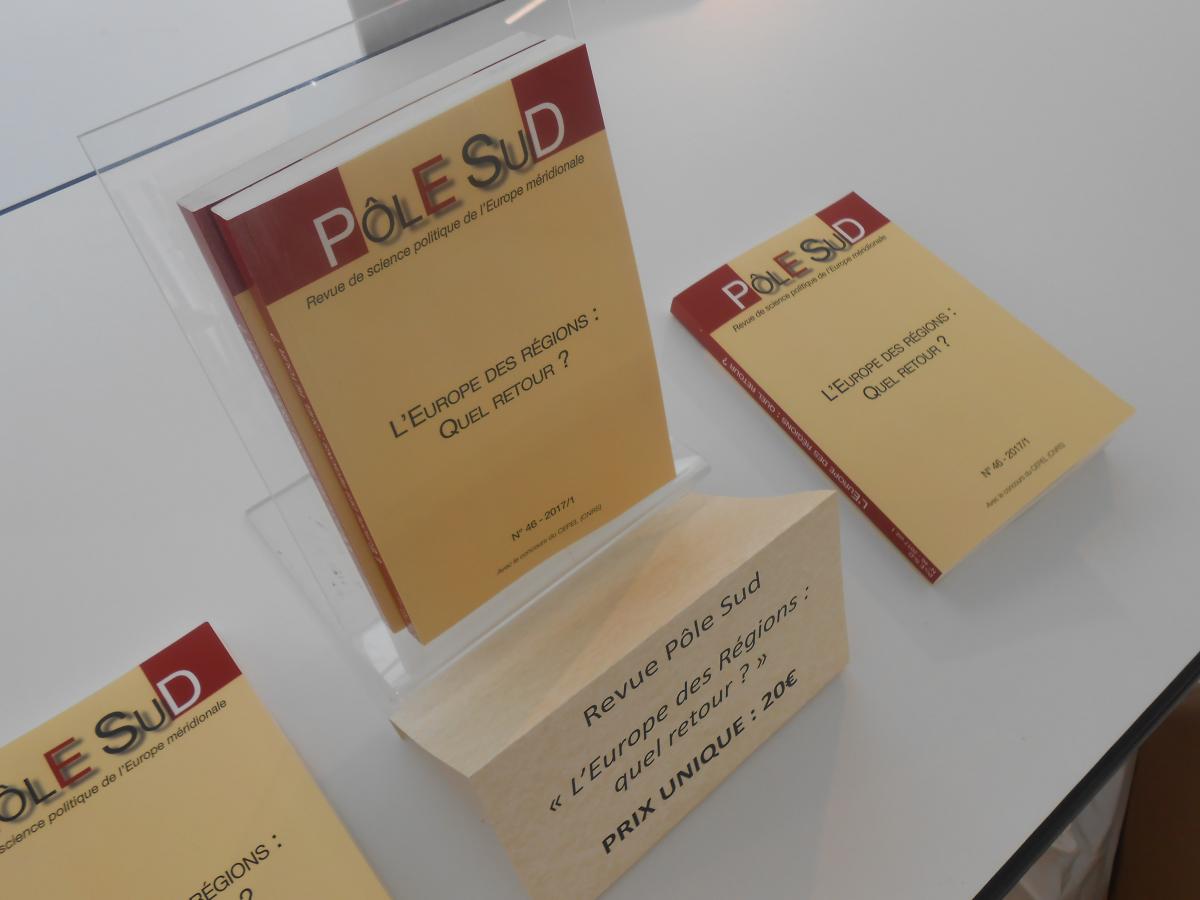
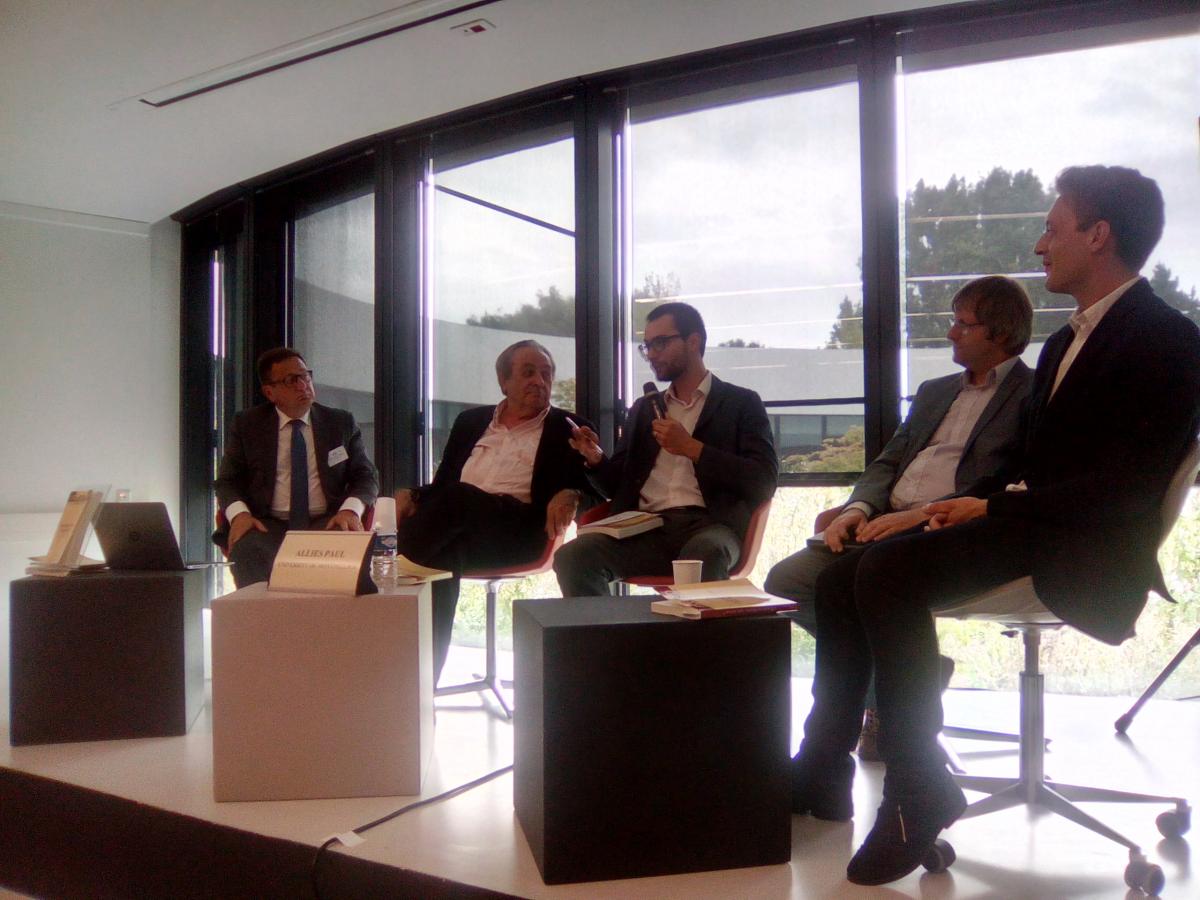
19h-22h : Cocktail dinner open to all
Wednesay 28th June
Excursion Day in the Métropole européenne de Lille: “Innovation and creative economy: urban projects and planning schemes”.
9h: departure by bus, appointment at the MEL (European Metropolis of Lille), 1
rue du Ballon, 59000 LILLE
9h30-10h30: visit of Euratechnologies in Lomme
11h-12h30: visit of Plaine Images in Roubaix
13h: return by bus to the MEL for a moment of conviviality around a cocktail
reception
- Plaine Images : Plaine Images is a cluster entirely devoted to moving images in all their forms, and in particular to the creative industries : virtual reality, video games, animation, audiovisual projects, serious games, web development, events, graphic-design, digital marketing, sound-music…The cluster hosts and supports companies of all sizes: from start-ups to international companies and fosters the convergence of know-hows, companies, screens and formats.
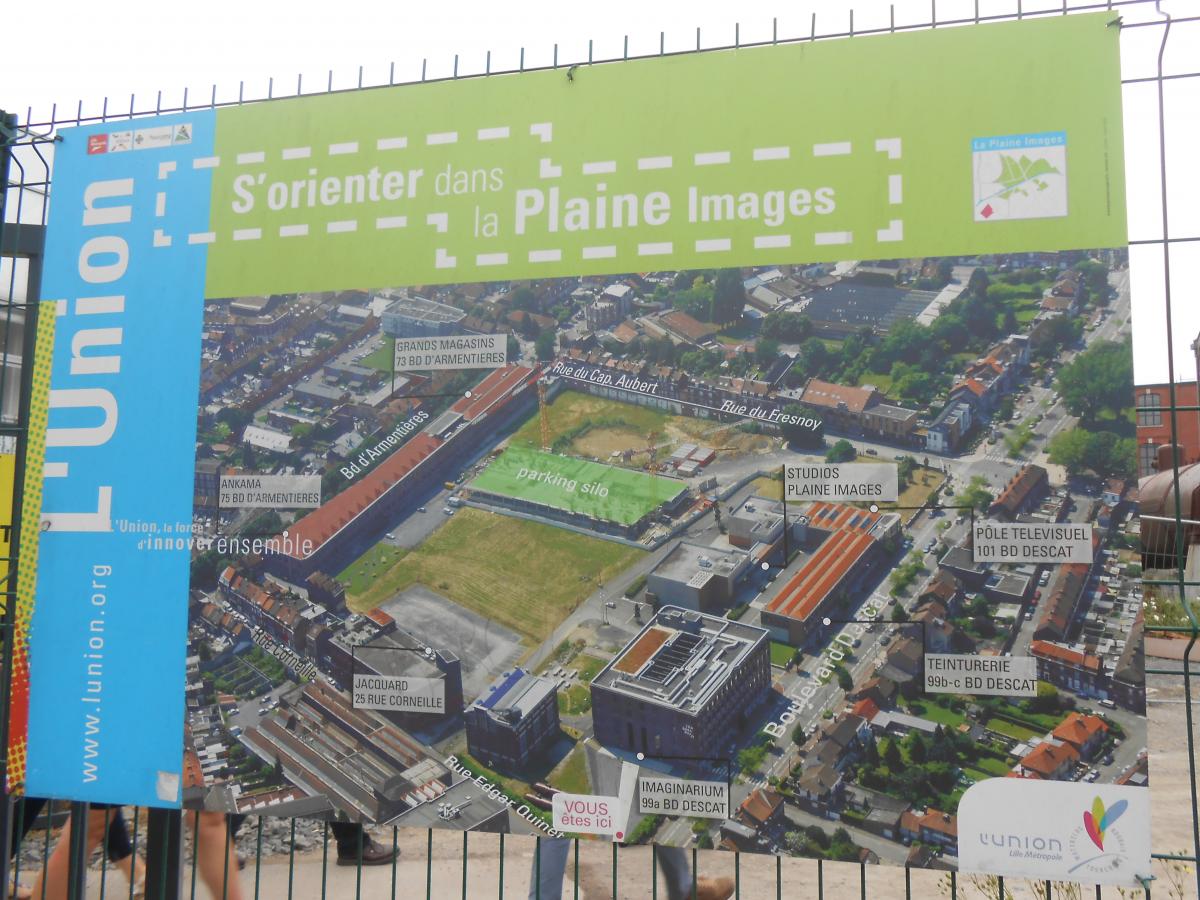
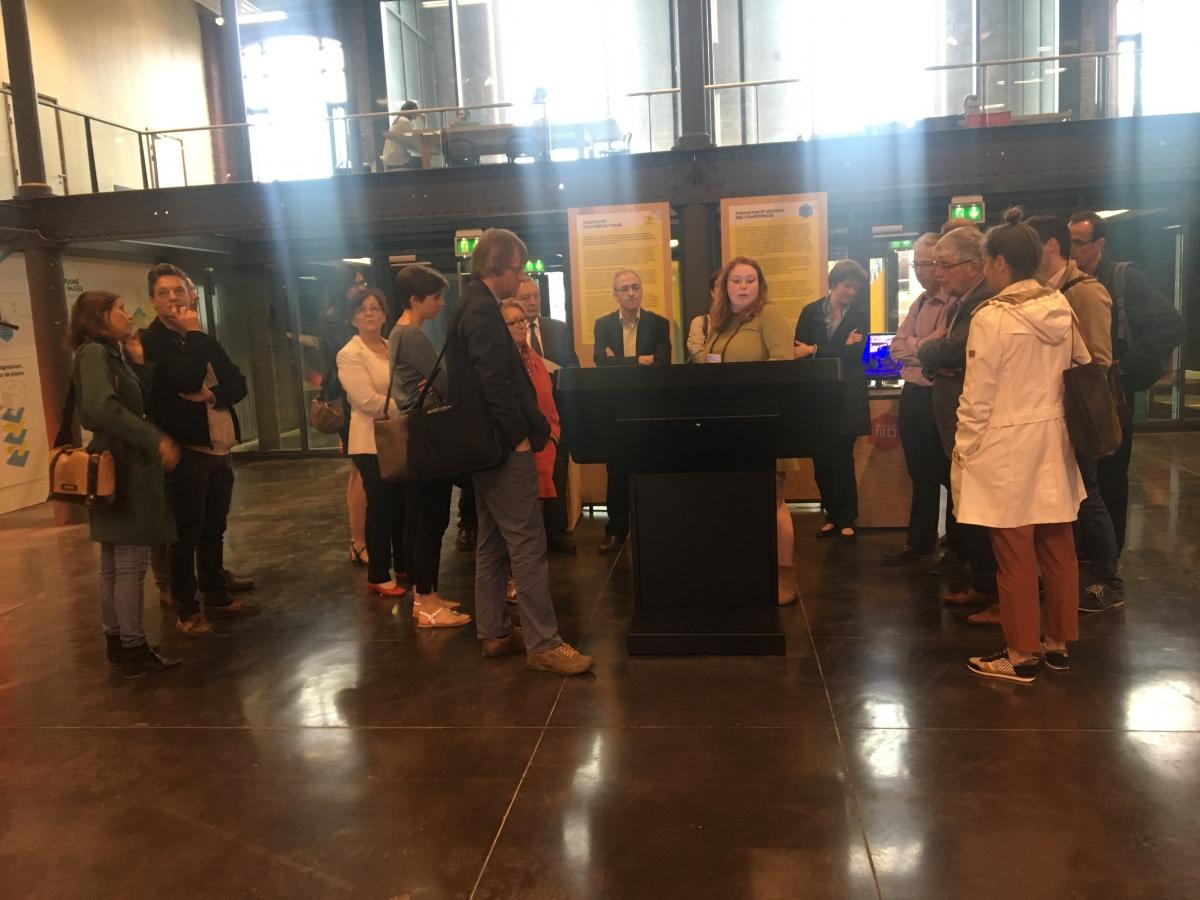
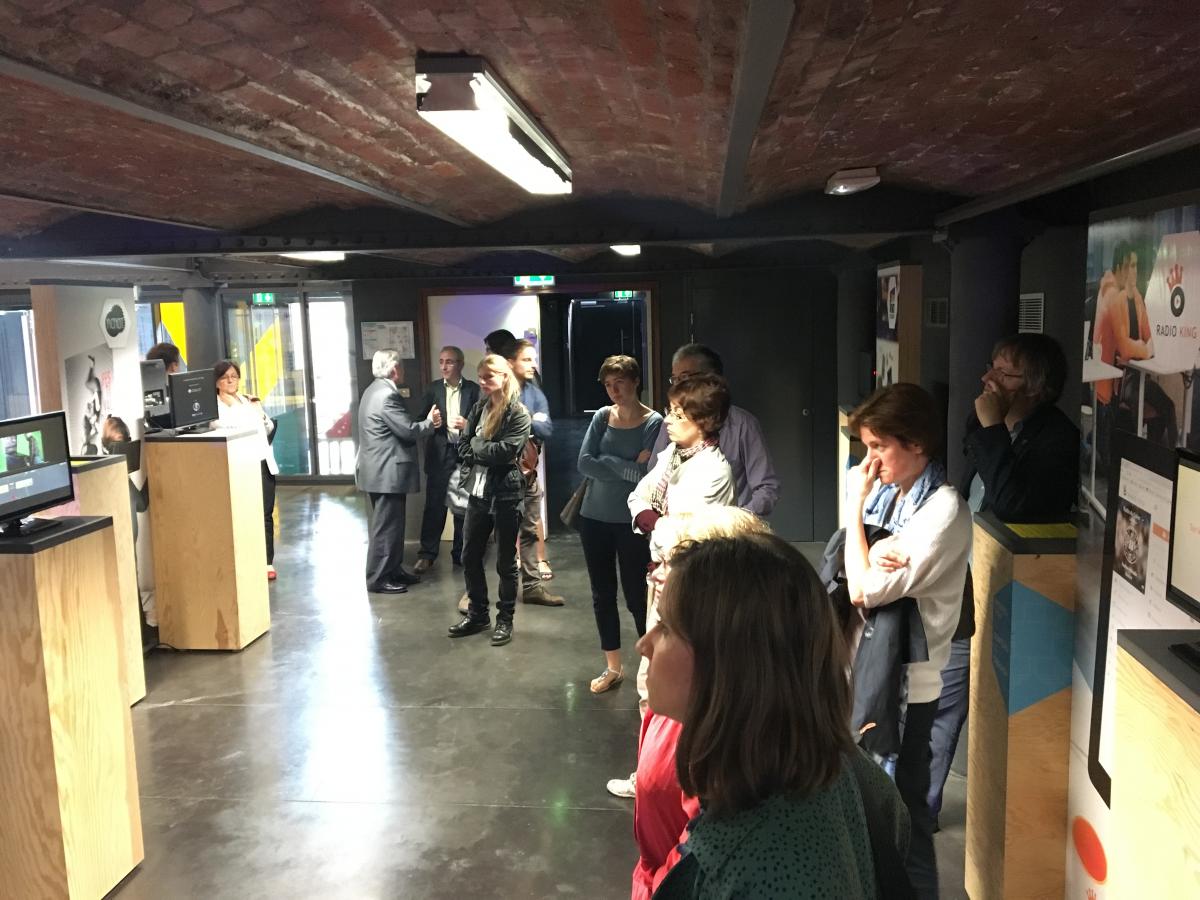
- Euratechonolgy: Euratechnology is an economic cluster dedicated to information and communication technologies (ICT). This business park gathers stakeholders and corporates from research, higher education, and economy : startups, SMEs, French and international firms.
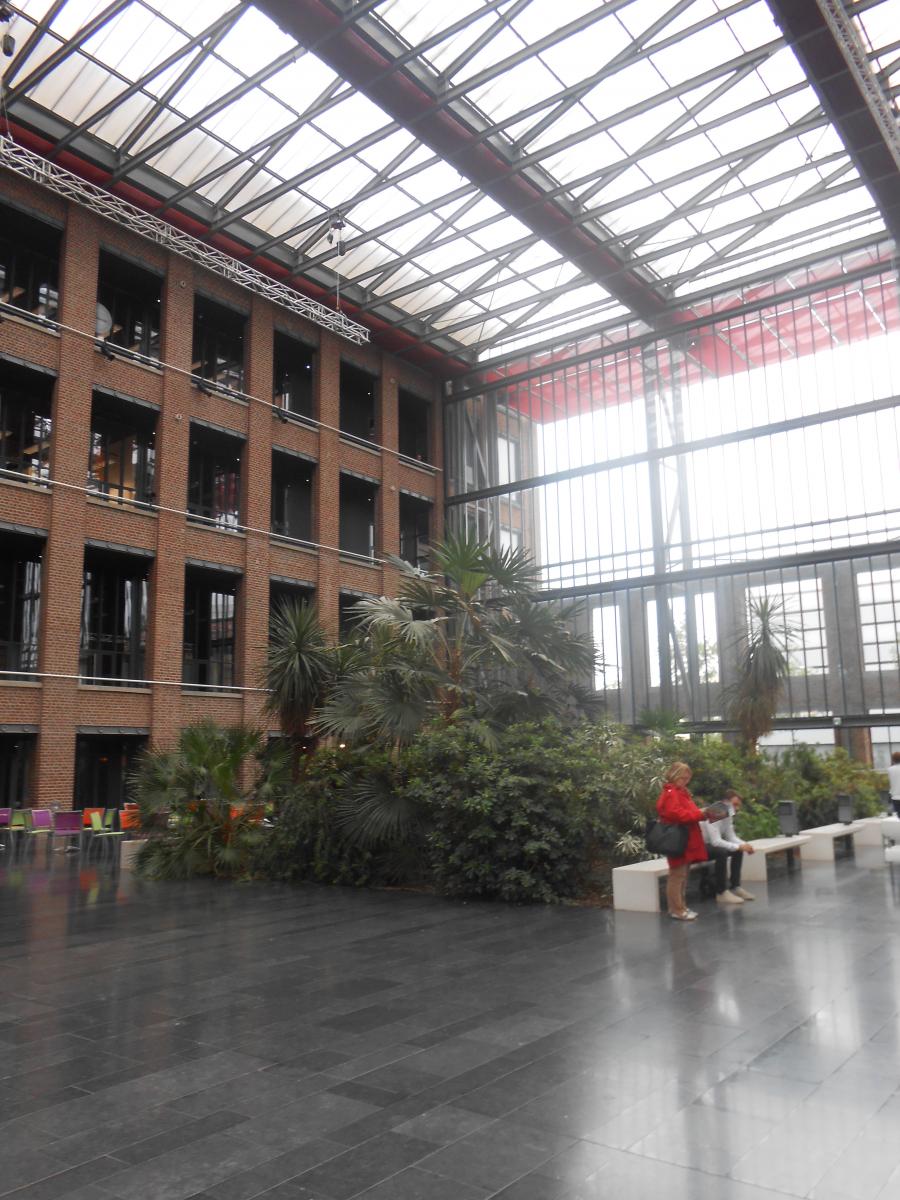
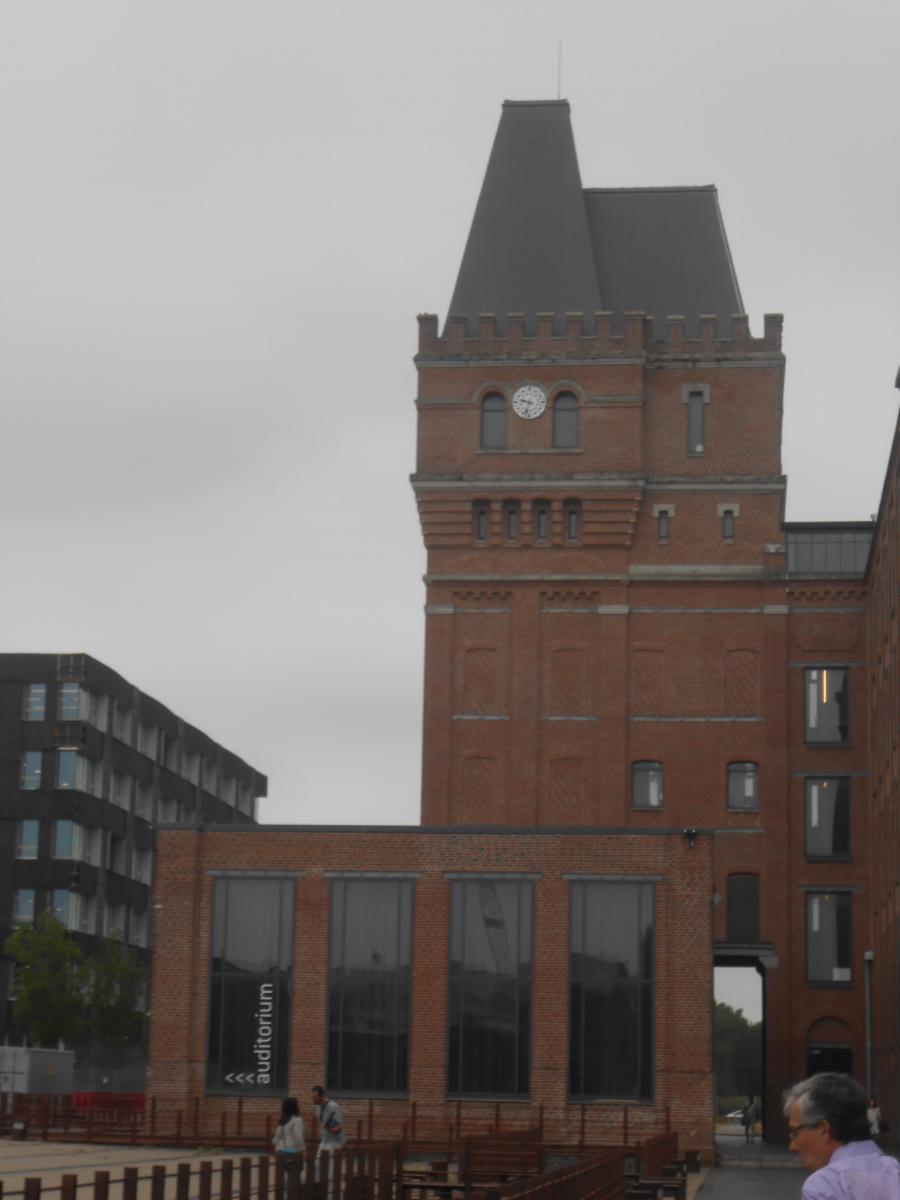
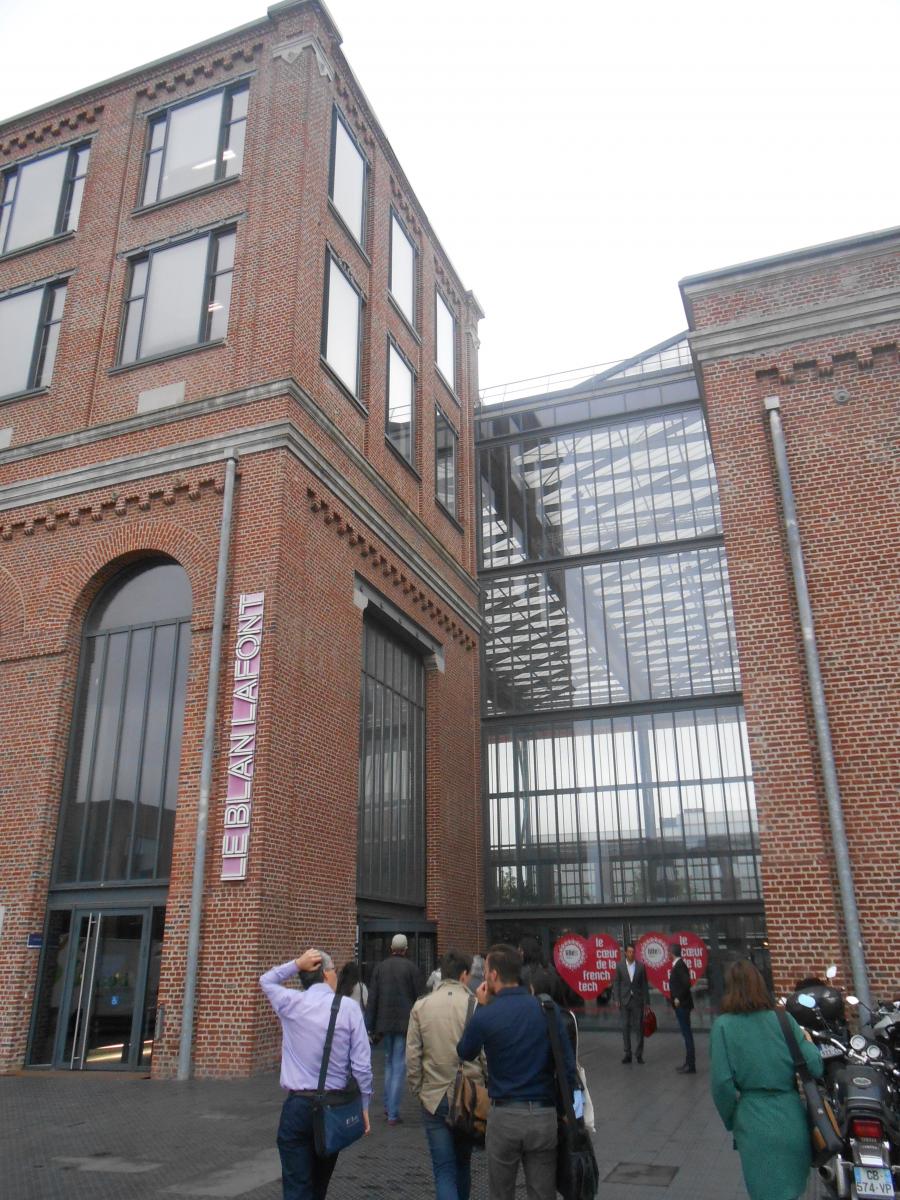
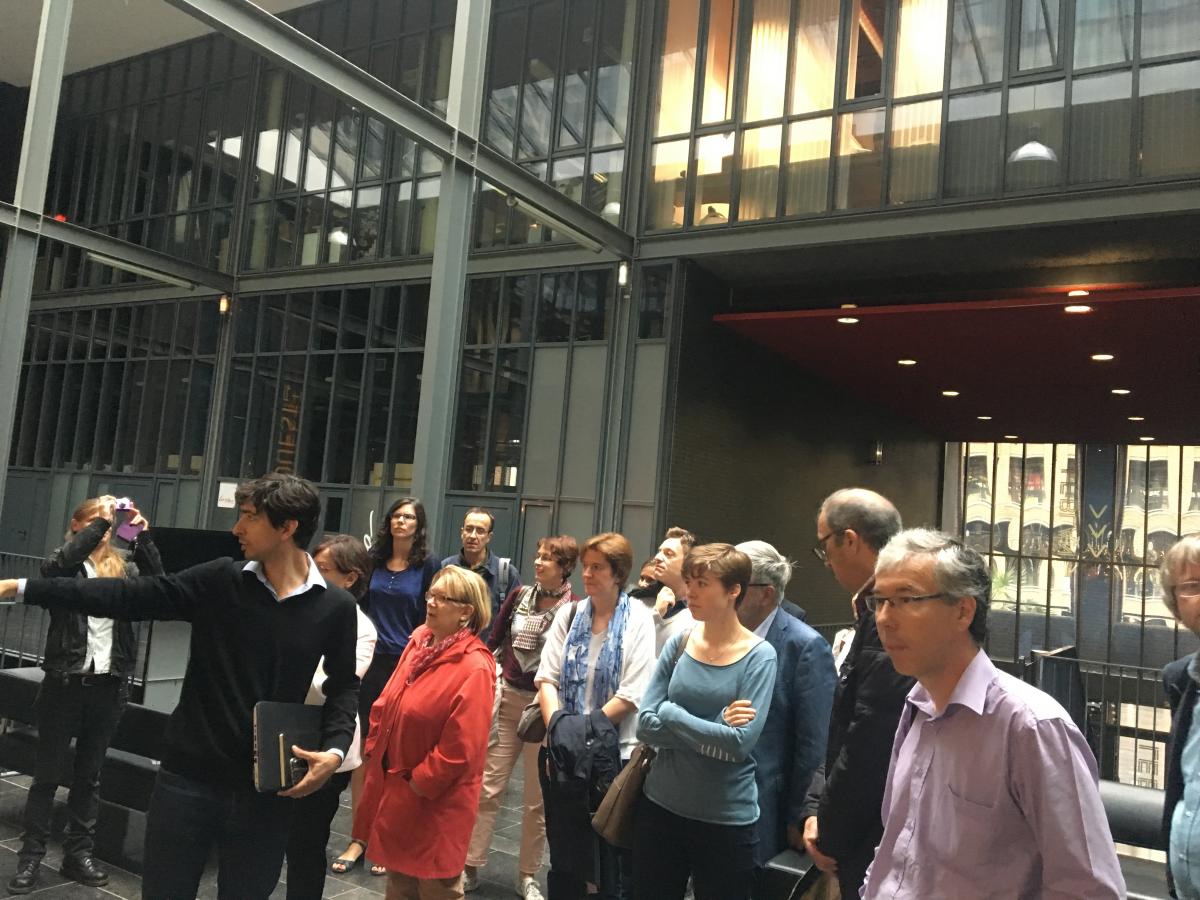
Excursion organised in partnership with the Métropole européenne de Lille
USEFUL INFORMATION
The conference is bilingual French-English with direct translation.
- Place:
LILLIAD Learning Center,
Campus Cité Scientifique,
59650 Villeneuve d’Ascq
FRANCE
(click to see and download the call for papers)




